AI tools for automate python testing
Related Tools:

Langflow
Langflow is a low-code app builder for RAG and multi-agent AI applications. It is Python-based and agnostic to any model, API, or database. Langflow offers a visual IDE for building and testing workflows, multi-agent orchestration, free cloud service, observability features, and ecosystem integrations. Users can customize workflows using Python and publish them as APIs or export as Python applications.

Freeplay
Freeplay is a tool that helps product teams experiment, test, monitor, and optimize AI features for customers. It provides a single pane of glass for the entire team, lightweight developer SDKs for Python, Node, and Java, and deployment options to meet compliance needs. Freeplay also offers best practices for the entire AI development lifecycle.
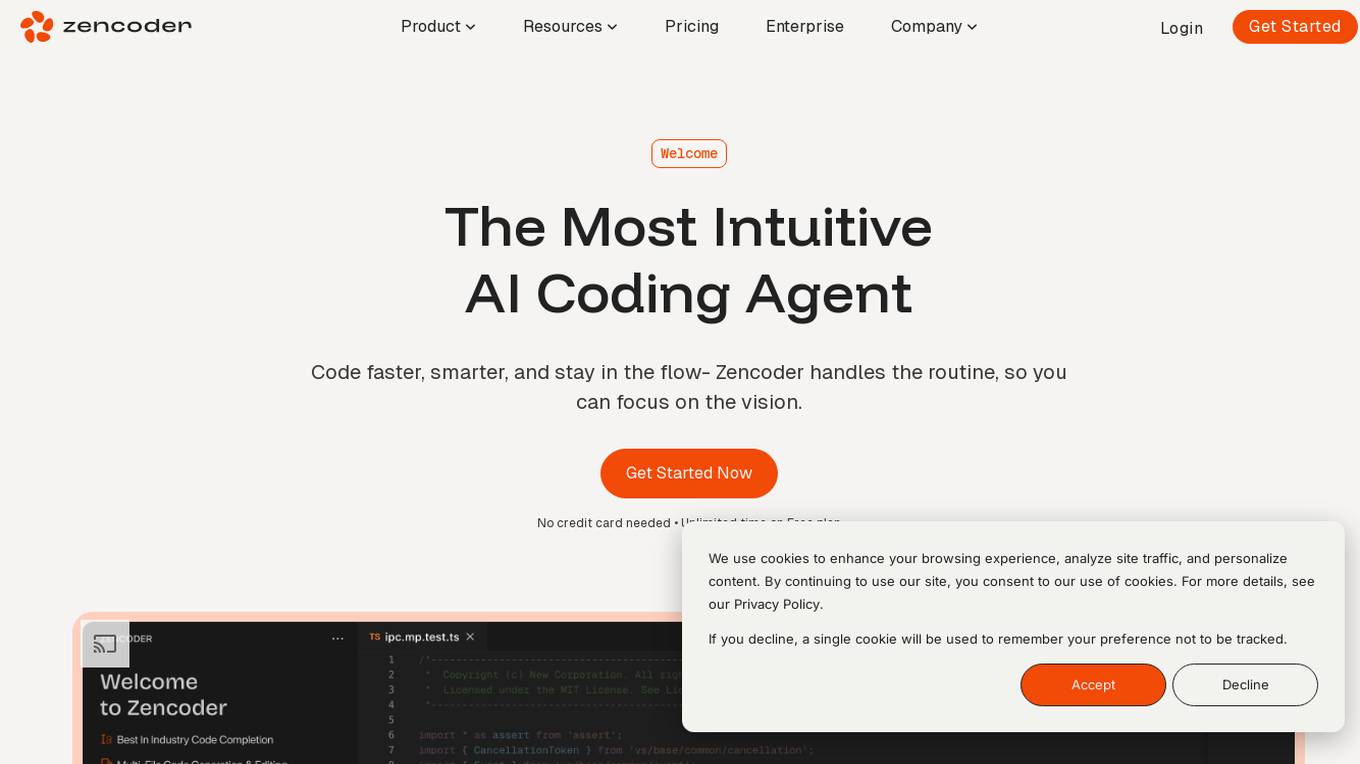
Zencoder
Zencoder is an intuitive AI coding agent designed to assist developers in coding tasks by leveraging advanced AI workflows and intelligent systems. It offers features like Repo Grokking for deep code insights, AI Agents for streamlining development processes, and capabilities such as code generation, chat assistance, code completion, and more. Zencoder aims to enhance software development efficiency, code quality, and project alignment by integrating seamlessly into developers' workflows.
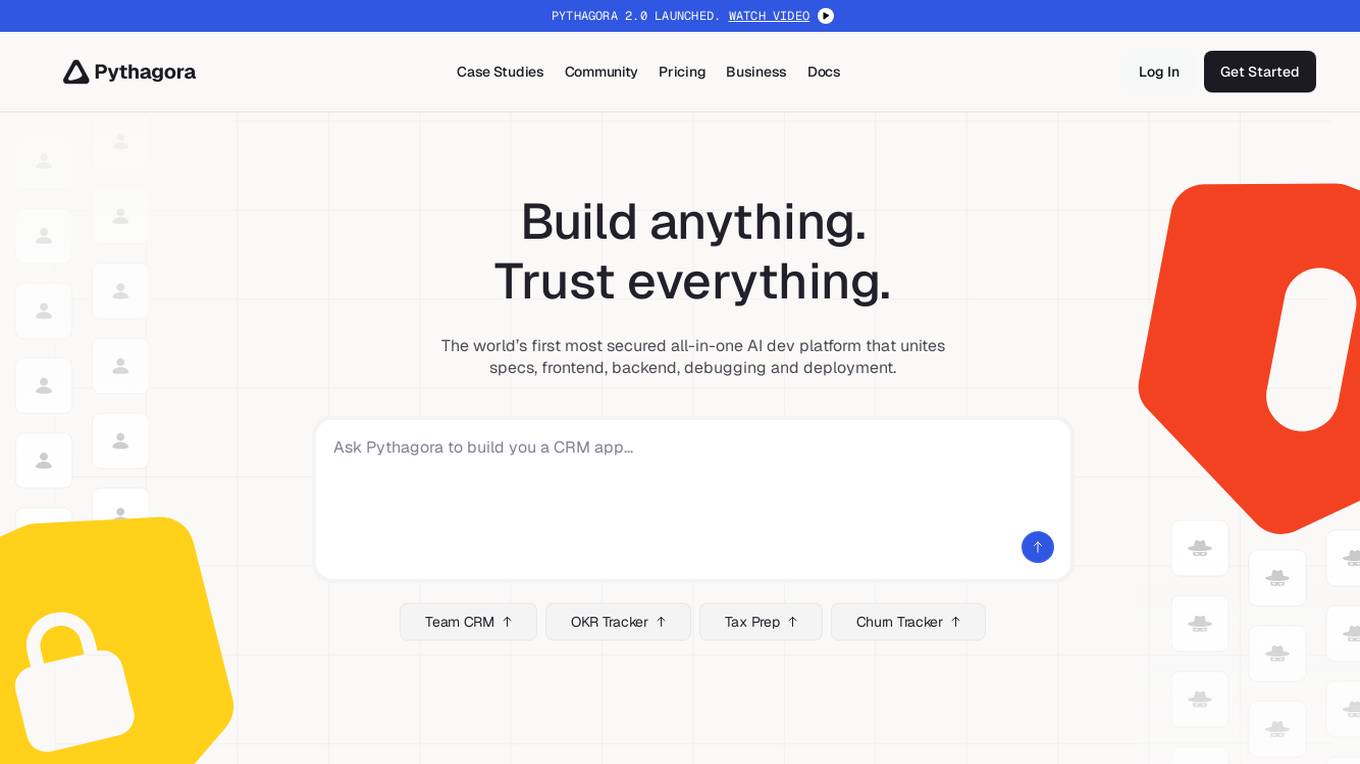
Pythagora
Pythagora is the world's first all-in-one AI development platform that offers a secure and comprehensive solution for building web applications. It combines frontend, backend, debugging, and deployment features in a single platform, enabling users to create apps without heavy coding requirements. Pythagora is powered by specialized AI agents and top-tier language models from OpenAI and Anthropic, providing users with tools for planning, writing, testing, and deploying full-stack web apps. The platform is designed to streamline the development process, offering enterprise-grade security, role-based authentication, and transparent control over projects.
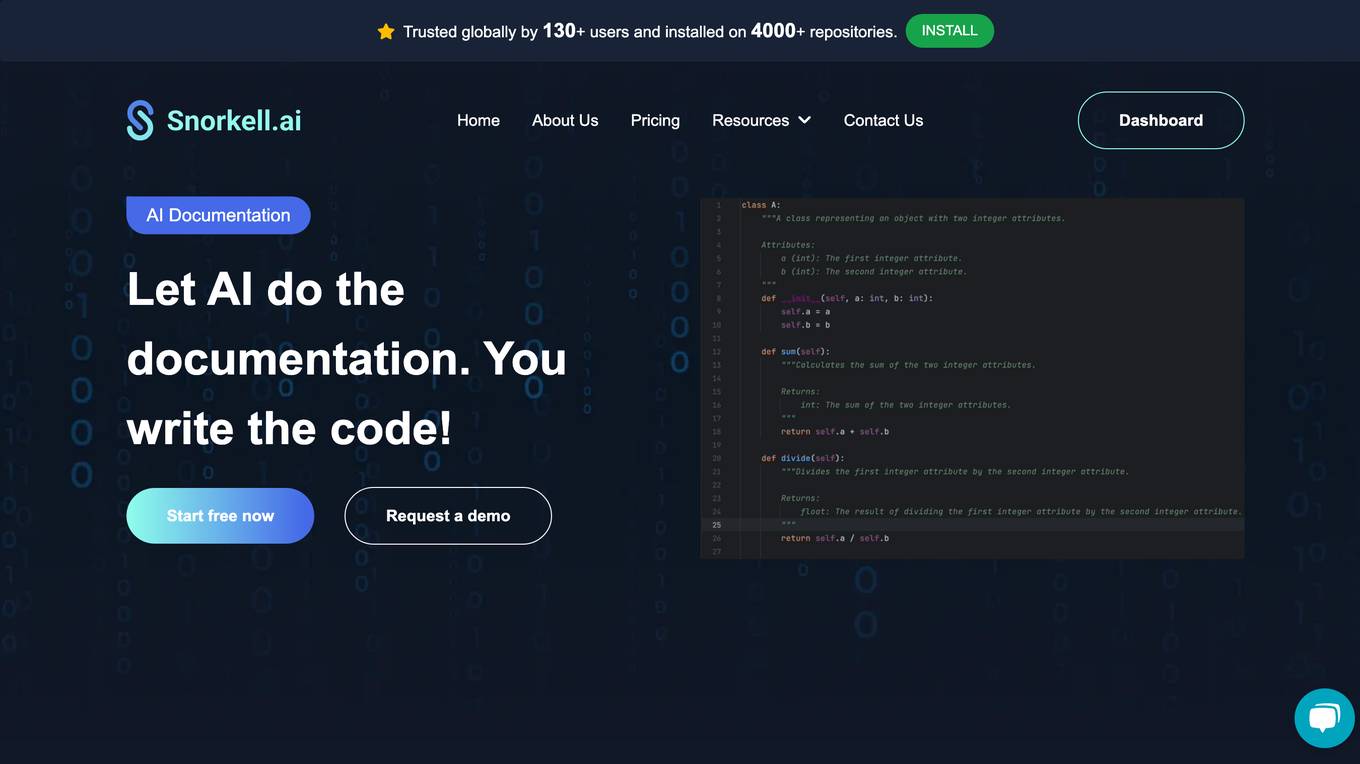
Snorkell.ai
Snorkell.ai is an automated documentation generation tool that uses AI to create and update docstrings for GitHub projects. It supports multiple programming languages, including Python, JavaScript, TypeScript, Java, and Kotlin. Snorkell.ai integrates with GitHub and automatically generates docstrings whenever a pull request is merged, ensuring that documentation is always up-to-date with the codebase. It helps developers save time and effort by automating the documentation process, leading to improved code quality and reduced onboarding time.
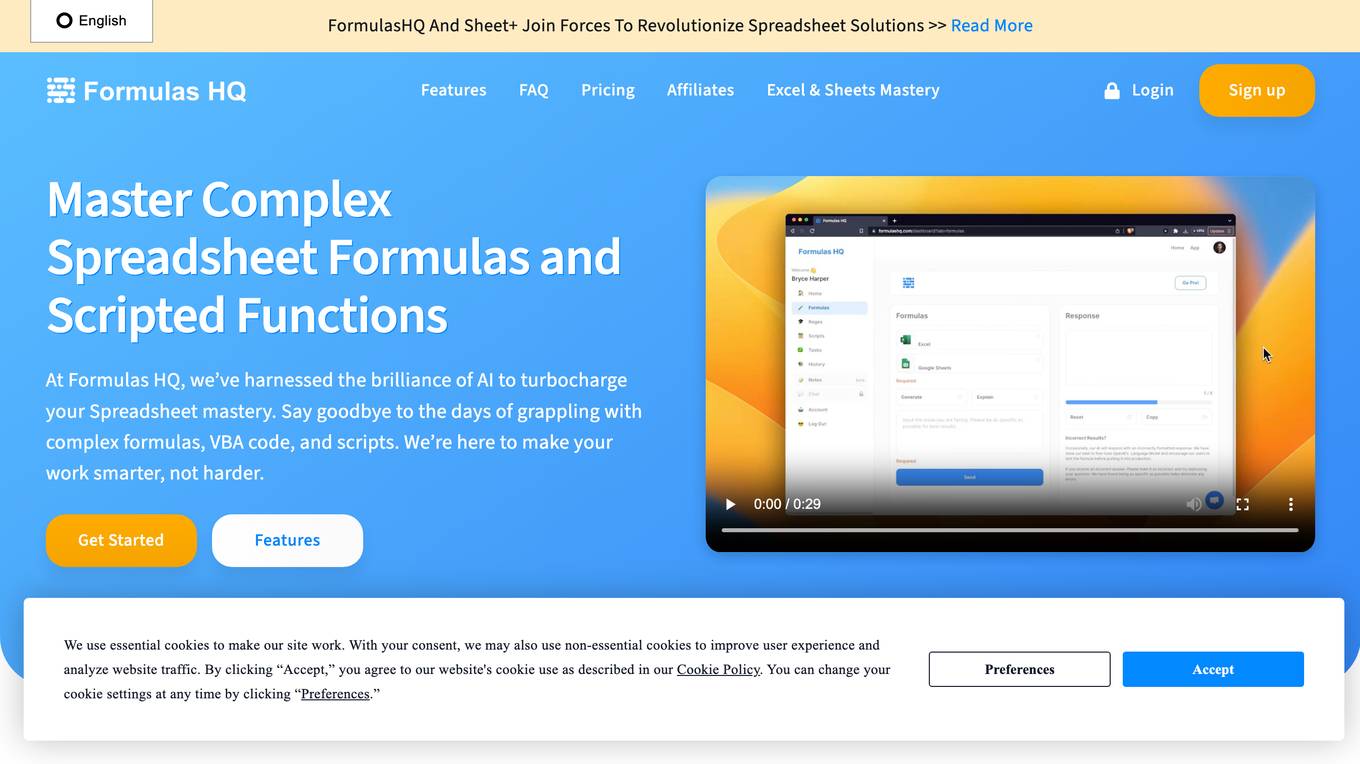
Formulas HQ
Formulas HQ is an AI-powered formula and script generator for Excel and Sheets. It provides users with a range of tools to simplify complex calculations, automate tasks, and enhance their spreadsheet mastery. With Formulas HQ, users can generate formulas, regular expressions, VBA code, and Apps Script, even without prior programming experience. The platform also offers a chat feature with system prompts to assist users with idea generation and troubleshooting. Formulas HQ is designed to empower users to work smarter and make better business decisions.
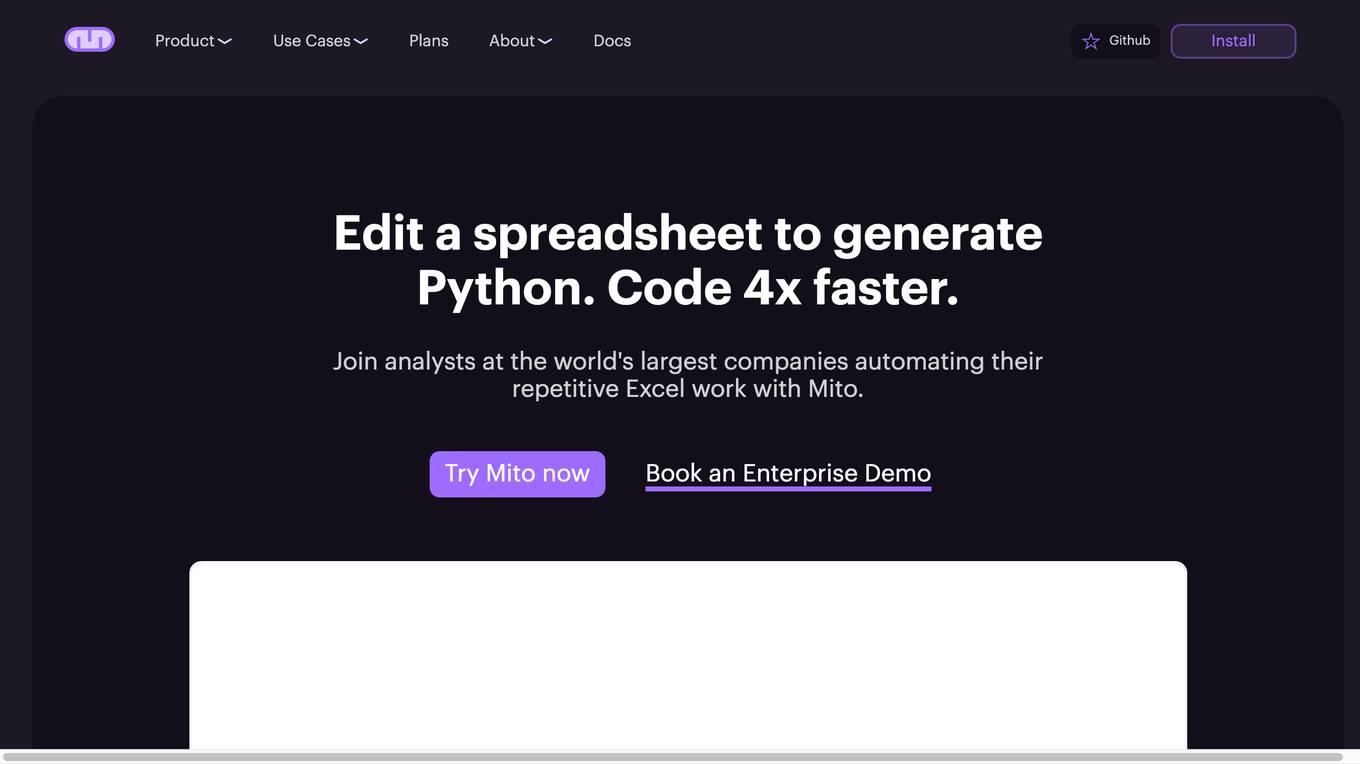
Mito
Mito is a low-code data app infrastructure that allows users to edit spreadsheets and automatically generate Python code. It is designed to help analysts automate their repetitive Excel work and take automation into their own hands. Mito is a Jupyter extension and Streamlit component, so users don't need to set up any new infrastructure. It is easy to get started with Mito, simply install it using pip and start using it in Jupyter or Streamlit.
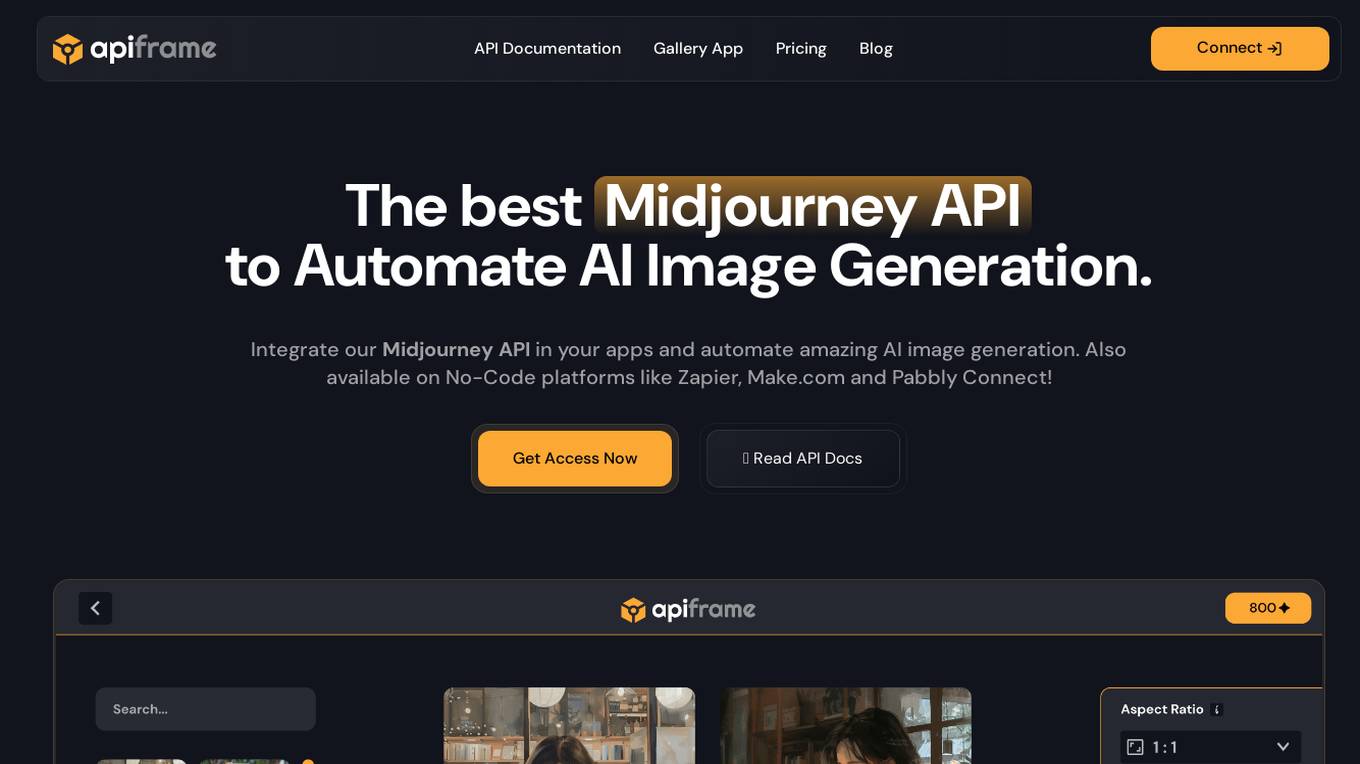
APIFRAME
APIFRAME is an AI tool that offers the Midjourney API for automating AI image generation. It provides a stable and scalable solution for developers and product owners to leverage Midjourney AI's image generation capabilities through a rich-featured API. With near-zero downtime and seamless integration, APIFRAME empowers users to automate amazing AI image generation in their applications.
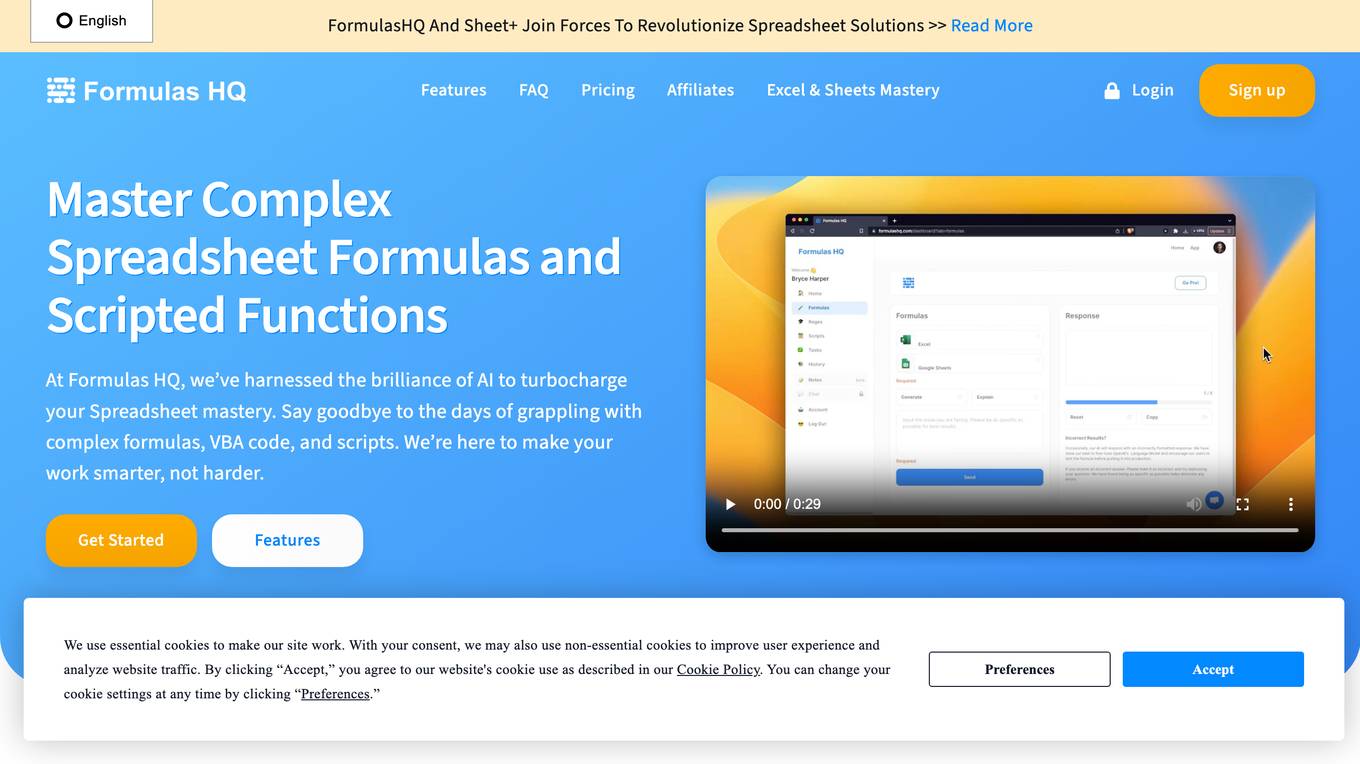
Formulas HQ
Formulas HQ is an AI-powered formula and script generator for Excel and Sheets. It provides users with a variety of tools to simplify complex calculations, automate tasks, and gain insights from data. The platform includes features such as formula generation, regular expression simplification, VBA and Apps Script automation, and chat-based assistance. Formulas HQ is designed to help users improve their productivity and efficiency when working with spreadsheets.

Supersimple
Supersimple is an AI-native data analytics platform that combines a semantic data modeling layer with the ability to answer ad hoc questions, giving users reliable, consistent data to power their day-to-day work.
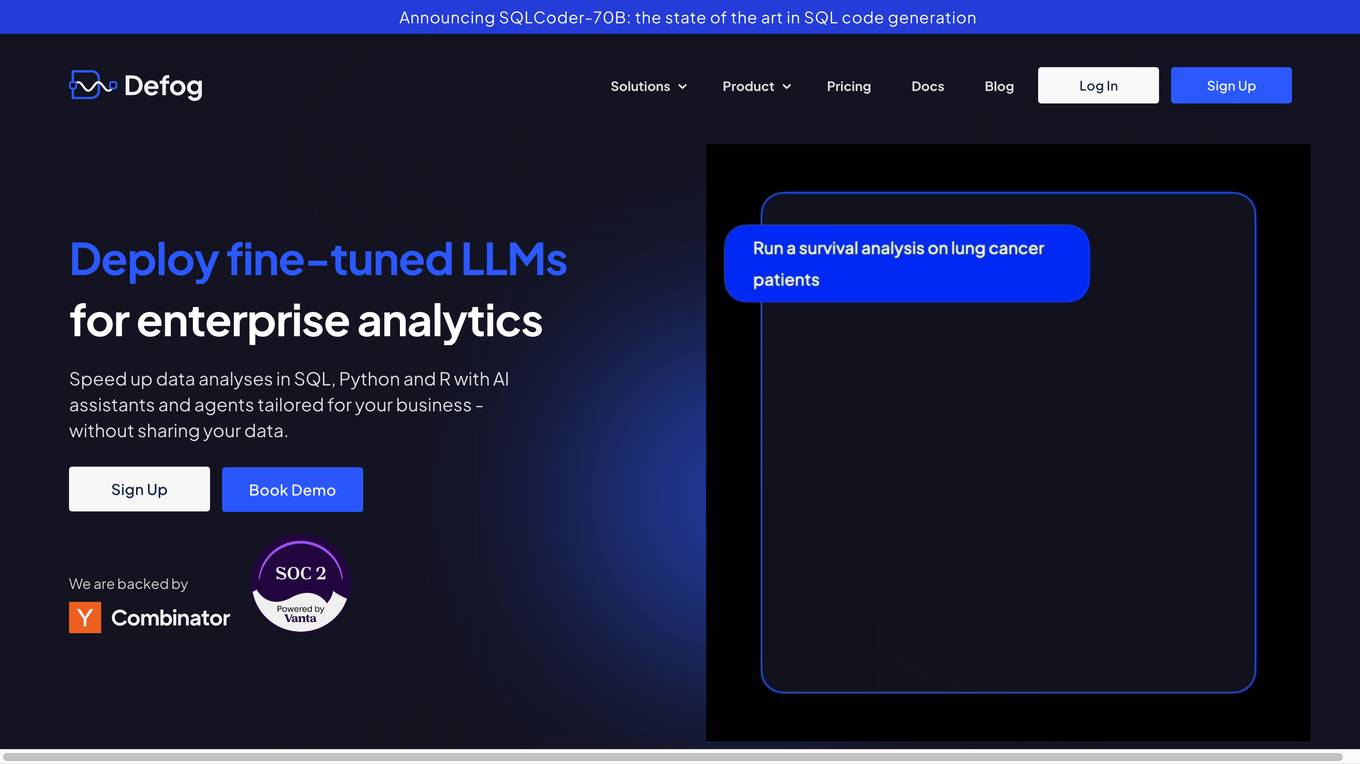
Defog.ai
Defog.ai provides fine-tuned AI models for enterprise SQL. It helps businesses speed up data analyses in SQL, Python, and R with AI assistants and agents tailored for their business - without sharing their data. Defog.ai's key features include the ability to ask questions of data in natural language, get results when needed, integrate with any SQL database or data warehouse, automatically visualize data as tables and charts, and fine-tune on your metadata to give results you can trust.

Data Hivemind
Data Hivemind is a company that provides automation services to businesses. They help businesses automate tasks such as lead generation, project management, recruiting, and CRM setup. Data Hivemind uses a variety of tools to automate tasks, including Zapier, Make.Com, Alteryx, N8N, Python, and others. They also offer a variety of services, including onboarding, weekly consultations, and documentation with every project.
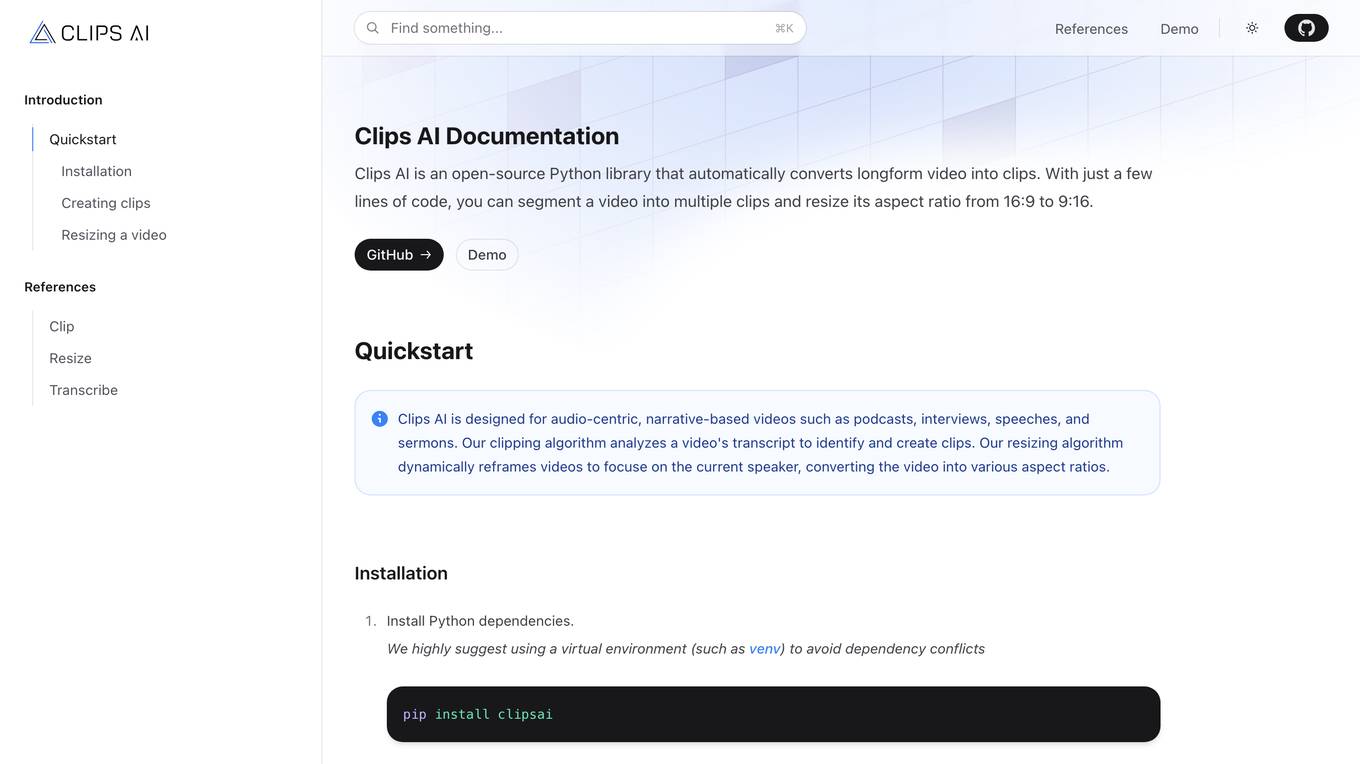
Clips AI
Clips AI is an open-source Python library that automates the process of converting longform videos into clips. It simplifies the task of segmenting videos and resizing their aspect ratios, making it ideal for audio-centric, narrative-based content like podcasts, interviews, speeches, and sermons. By leveraging advanced algorithms, Clips AI can identify key segments in a video's transcript and dynamically reframe the video to focus on the current speaker. The tool streamlines the process of video editing and enhances the viewer's experience by delivering concise, engaging clips.
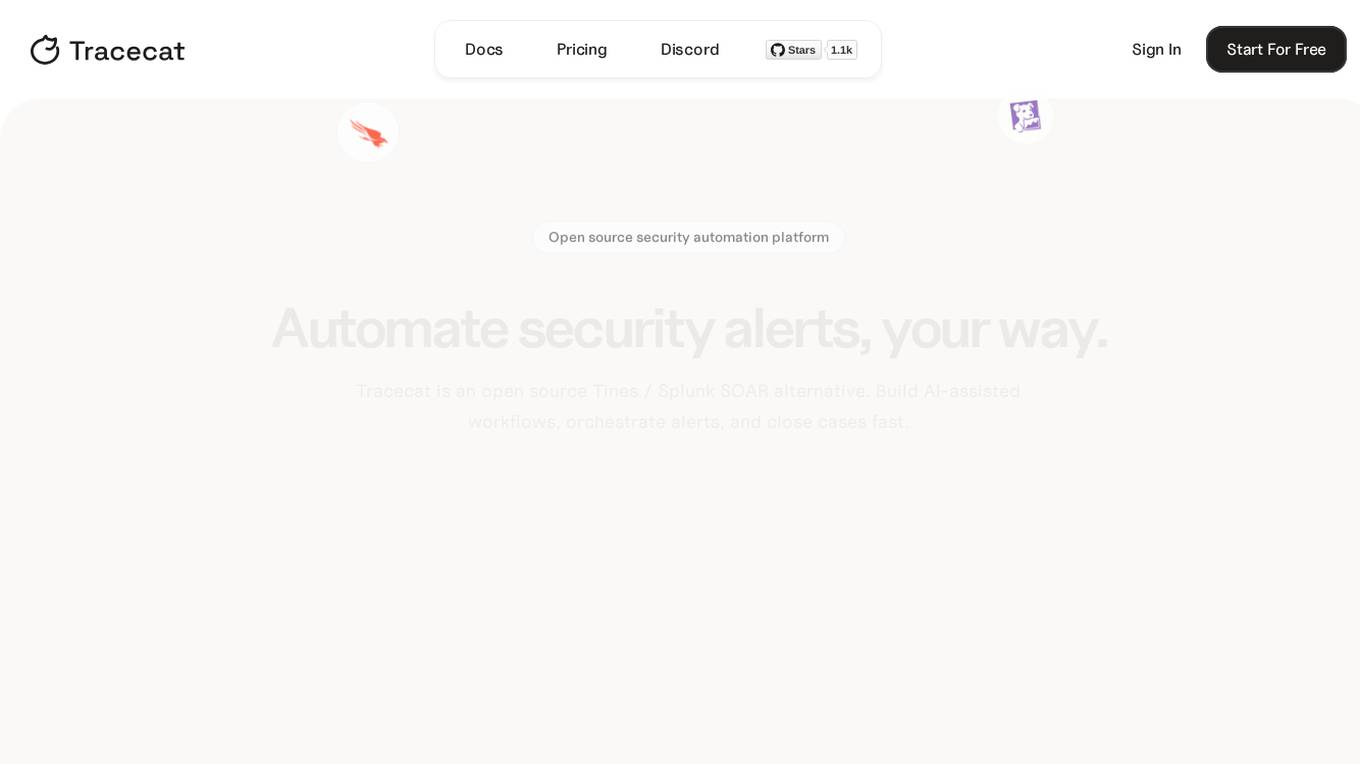
Tracecat
Tracecat is an open-source security automation platform that helps you automate security alerts, build AI-assisted workflows, orchestrate alerts, and close cases fast. It is a Tines / Splunk SOAR alternative that is built for builders and allows you to experiment for free. You can deploy Tracecat on your own infrastructure or use Tracecat Cloud with no maintenance overhead. Tracecat is Apache-2.0 licensed, which means it is open vision, open community, and open development. You can have your say in the future of security automation. Tracecat is no-code first, but you can also code as well. You can build automations fast with no-code and customize without vendor lock-in using Python. Tracecat has a click-and-drag workflow builder that allows you to automate SecOps using pre-built actions (API calls, webhooks, data transforms, AI tasks, and more) combined into workflows. No code is required. Tracecat also has a built-in case management system that allows you to open cases directly from workflows and track and manage security incidents all in one platform.
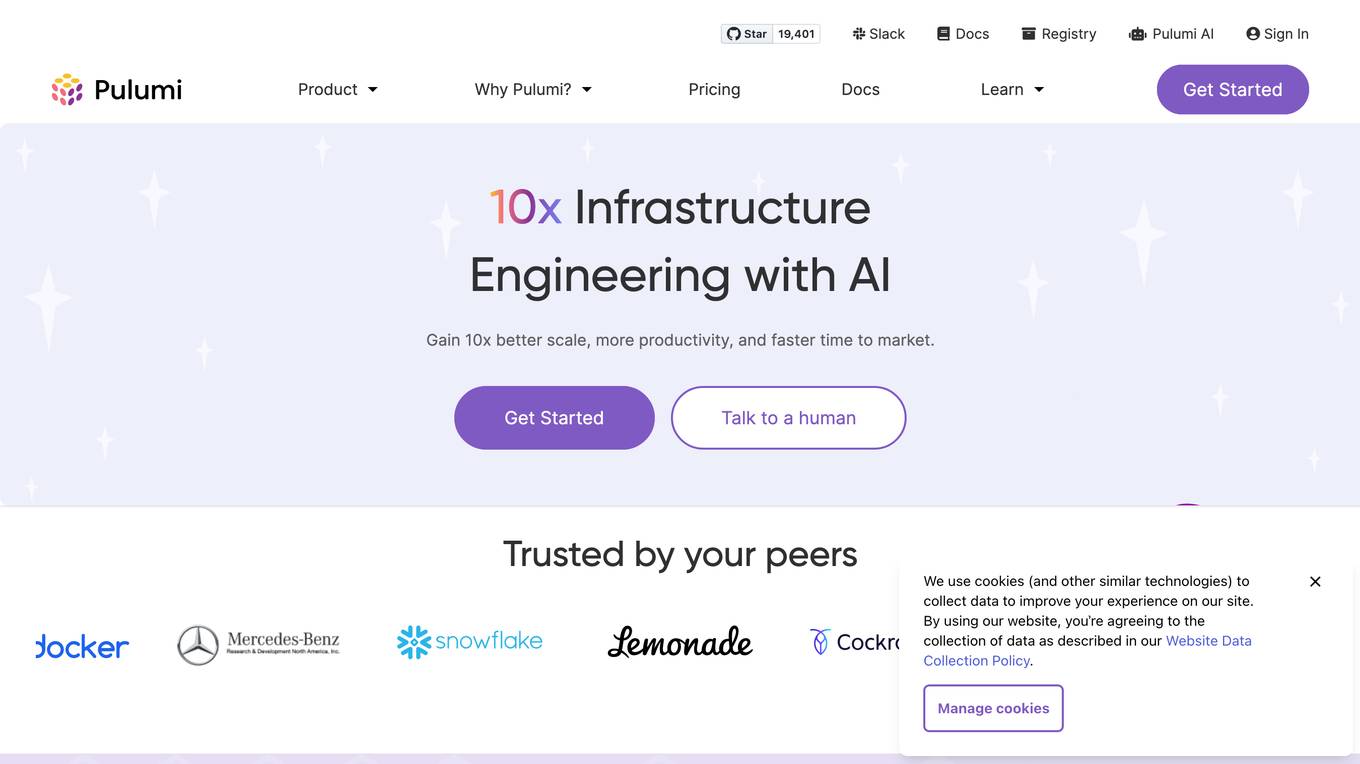
Pulumi
Pulumi is an AI-powered infrastructure as code tool that allows engineers to manage cloud infrastructure using various programming languages like Node.js, Python, Go, .NET, Java, and YAML. It offers features such as generative AI-powered cloud management, security enforcement through policies, automated deployment workflows, asset management, compliance remediation, and AI insights over the cloud. Pulumi helps teams provision, automate, and evolve cloud infrastructure, centralize and secure secrets management, and gain security, compliance, and cost insights across all cloud assets.
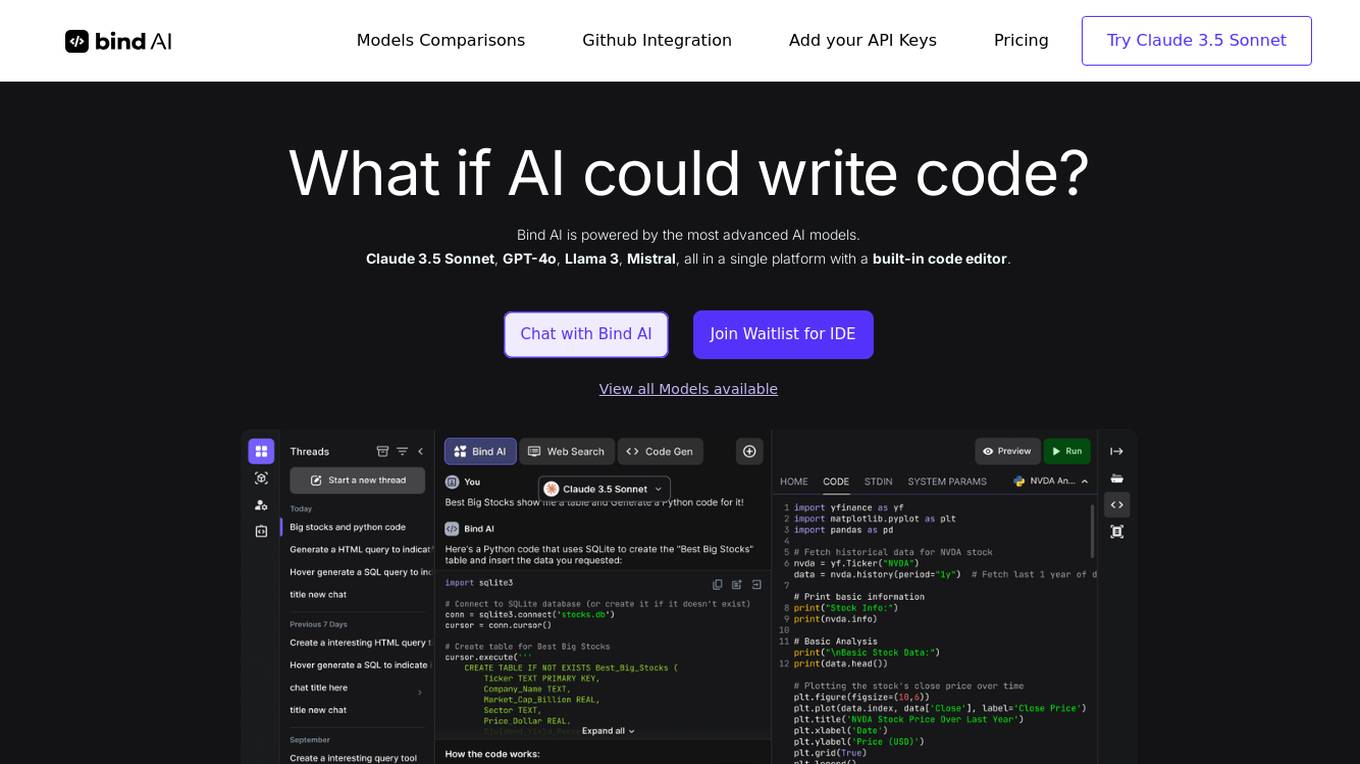
Bind AI
Bind AI is an advanced AI tool that enables users to generate code, scripts, and applications using a variety of AI models. It offers a platform with a built-in code editor and supports over 72 programming languages, including popular ones like Python, Java, and JavaScript. Users can create front-end web applications, parse JSON, write SQL queries, and automate tasks using the AI Code Editor. Bind AI also provides integration with Github and Google Drive, allowing users to sync their codebase and files for collaboration and development.
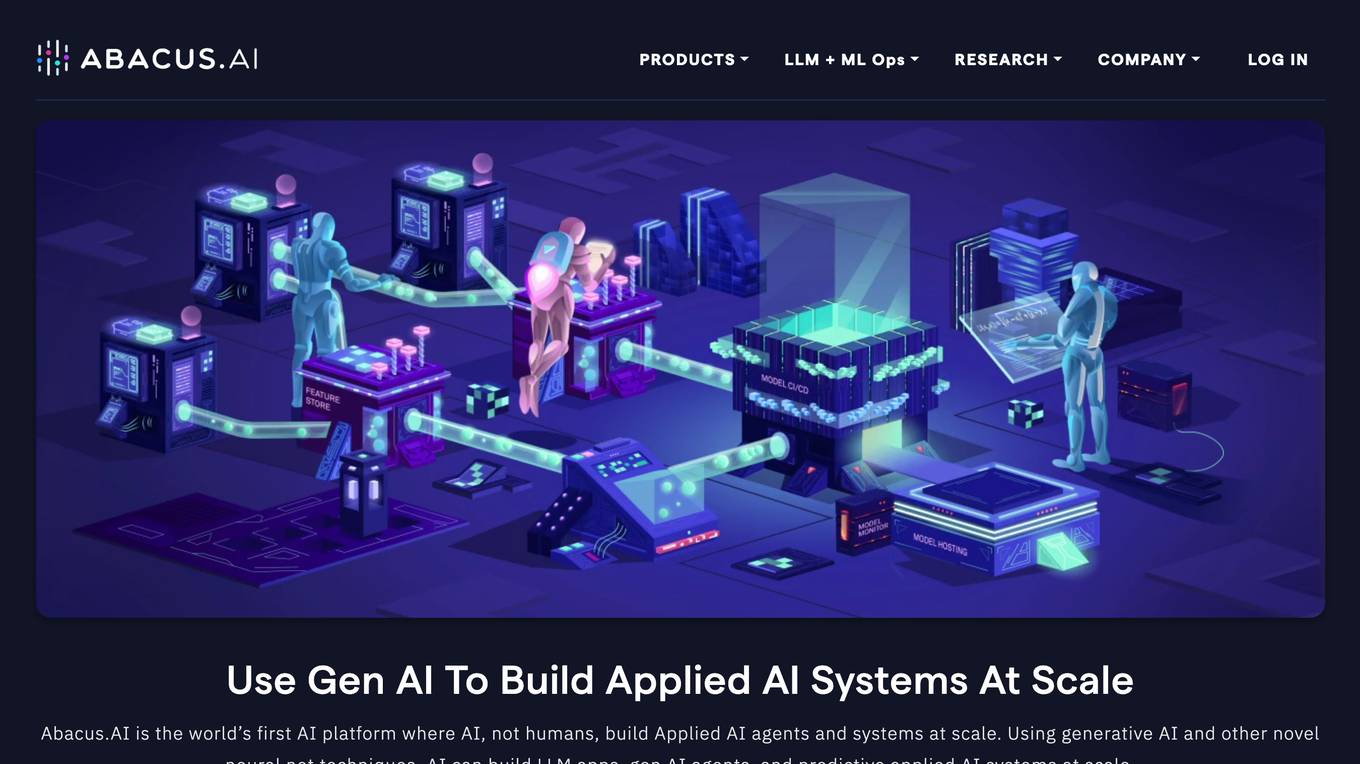
Abacus.AI
Abacus.AI is the world's first AI platform where AI, not humans, build Applied AI agents and systems at scale. Using generative AI and other novel neural net techniques, AI can build LLM apps, gen AI agents, and predictive applied AI systems at scale.
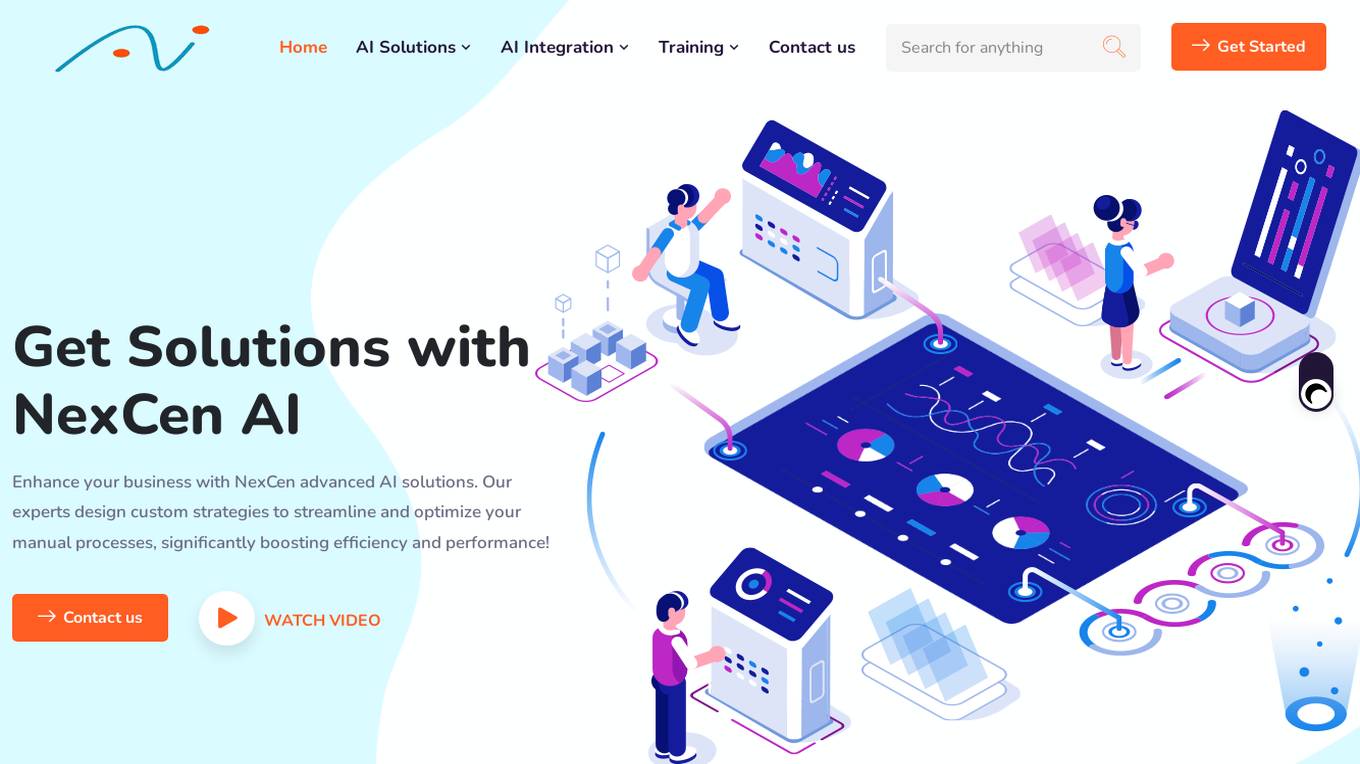
NexCen AI
NexCen AI is an advanced AI application offering cutting-edge solutions such as AI-powered hiring, contract lifecycle management, machine learning, deep learning, natural language processing, chatbot integration, and robotic process automation. The application empowers businesses with tailored AI strategies, advanced analytics, and workflow automation to drive efficiency, innovation, and growth. NexCen AI also provides expert training in AI, Python, and Cloud technologies to equip teams with the skills needed for data science and technology-driven growth.
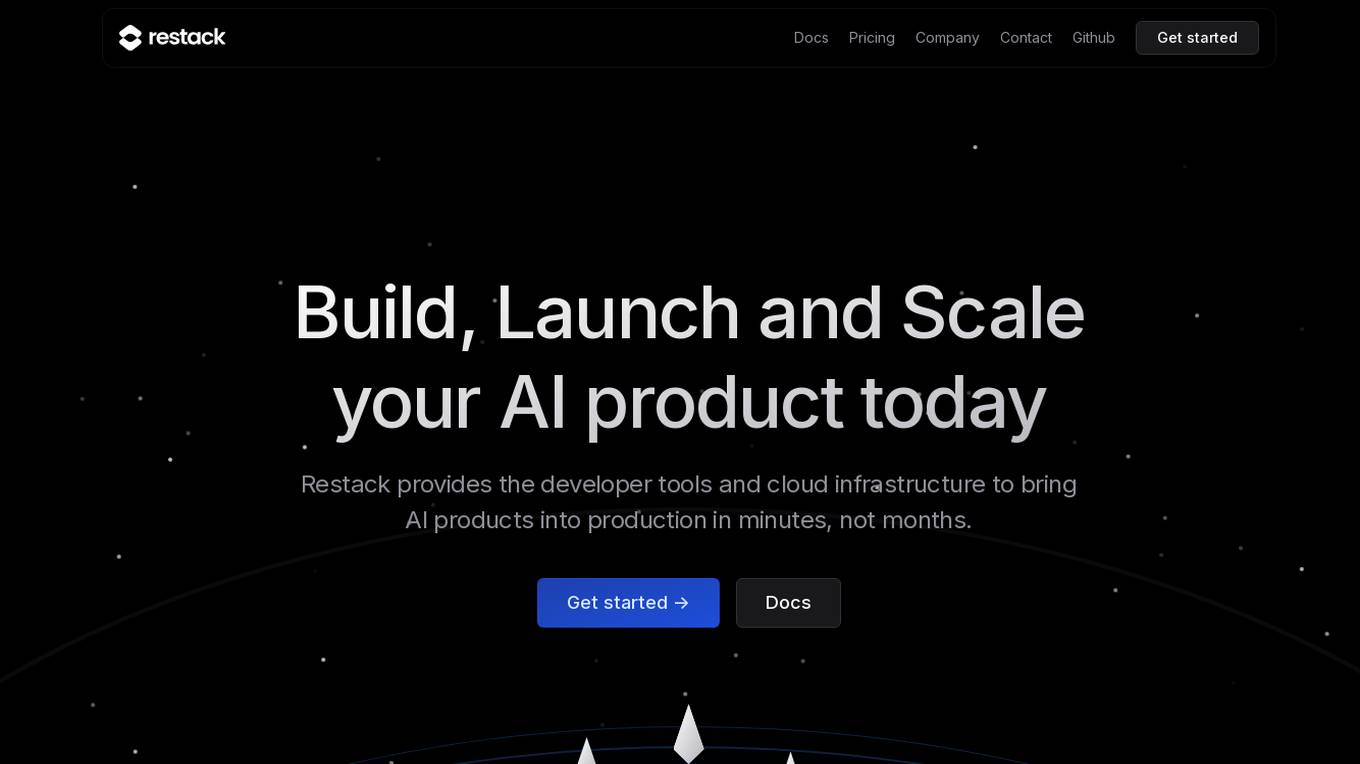
Restack
Restack is a developer tool and cloud infrastructure platform that enables users to build, launch, and scale AI products quickly and efficiently. With Restack, developers can go from local development to production in seconds, leveraging a variety of languages and frameworks. The platform offers templates, repository connections, and Dockerfile customization for seamless deployment. Restack Cloud provides cost-efficient scaling and GitHub integration for instant deployment. The platform simplifies the complexity of building and scaling AI applications, allowing users to move from code to production faster than ever before.
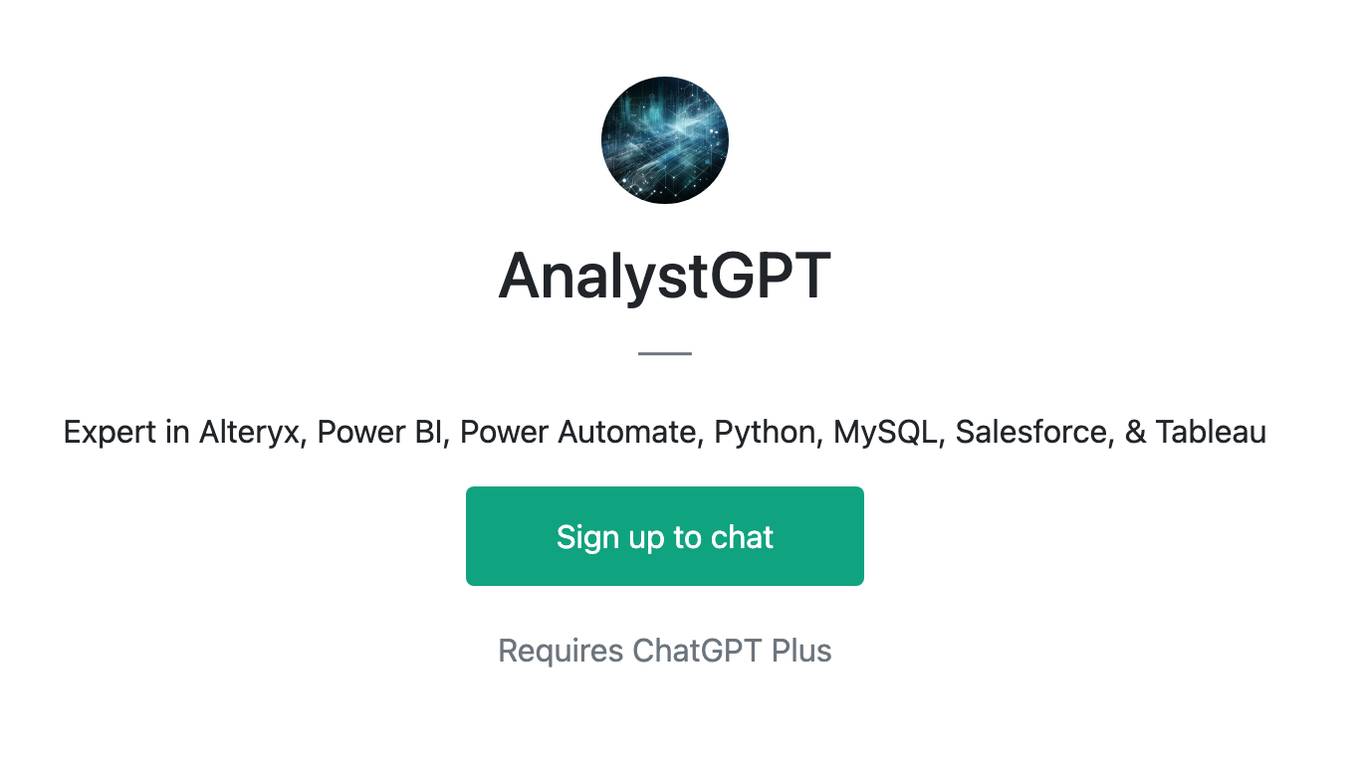
AnalystGPT
Expert in Alteryx, Power BI, Power Automate, Python, MySQL, Salesforce, & Tableau
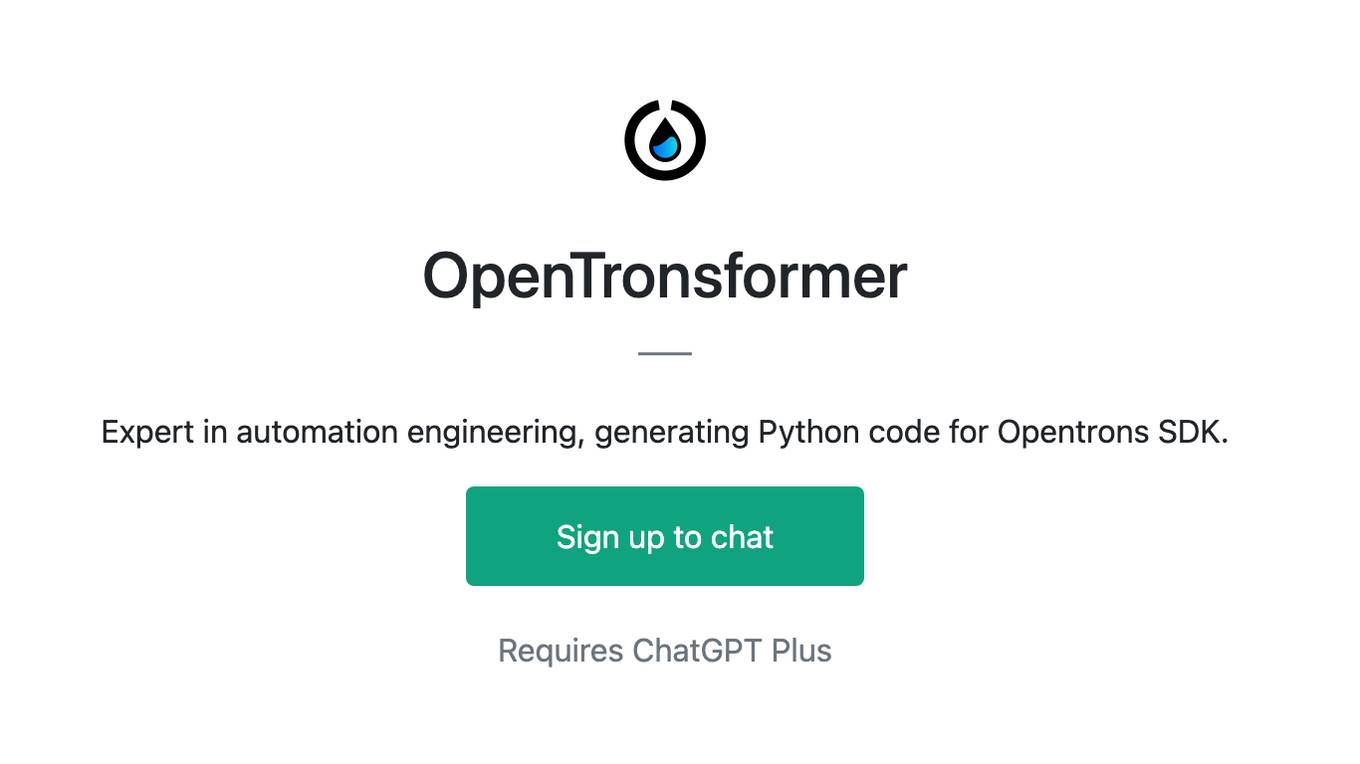
OpenTronsformer
Expert in automation engineering, generating Python code for Opentrons SDK.
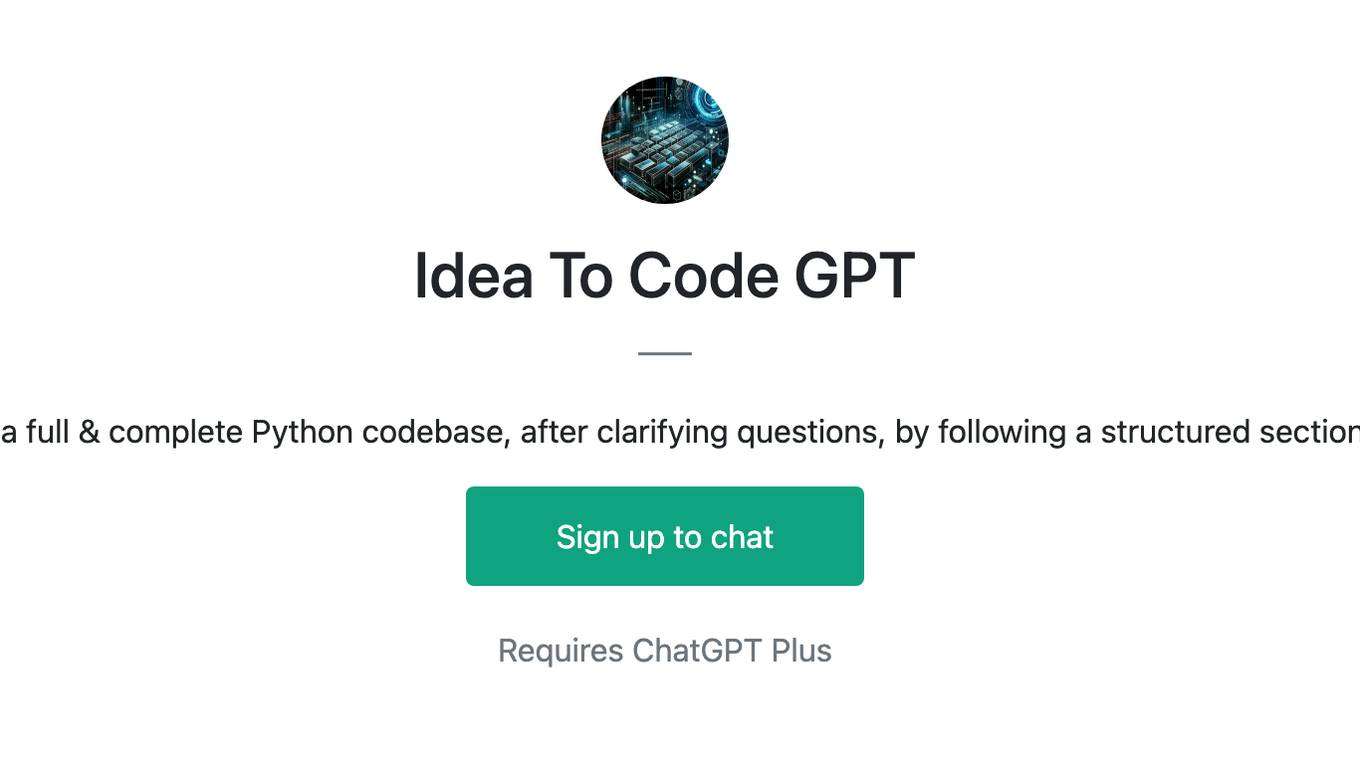
Idea To Code GPT
Generates a full & complete Python codebase, after clarifying questions, by following a structured section pattern.
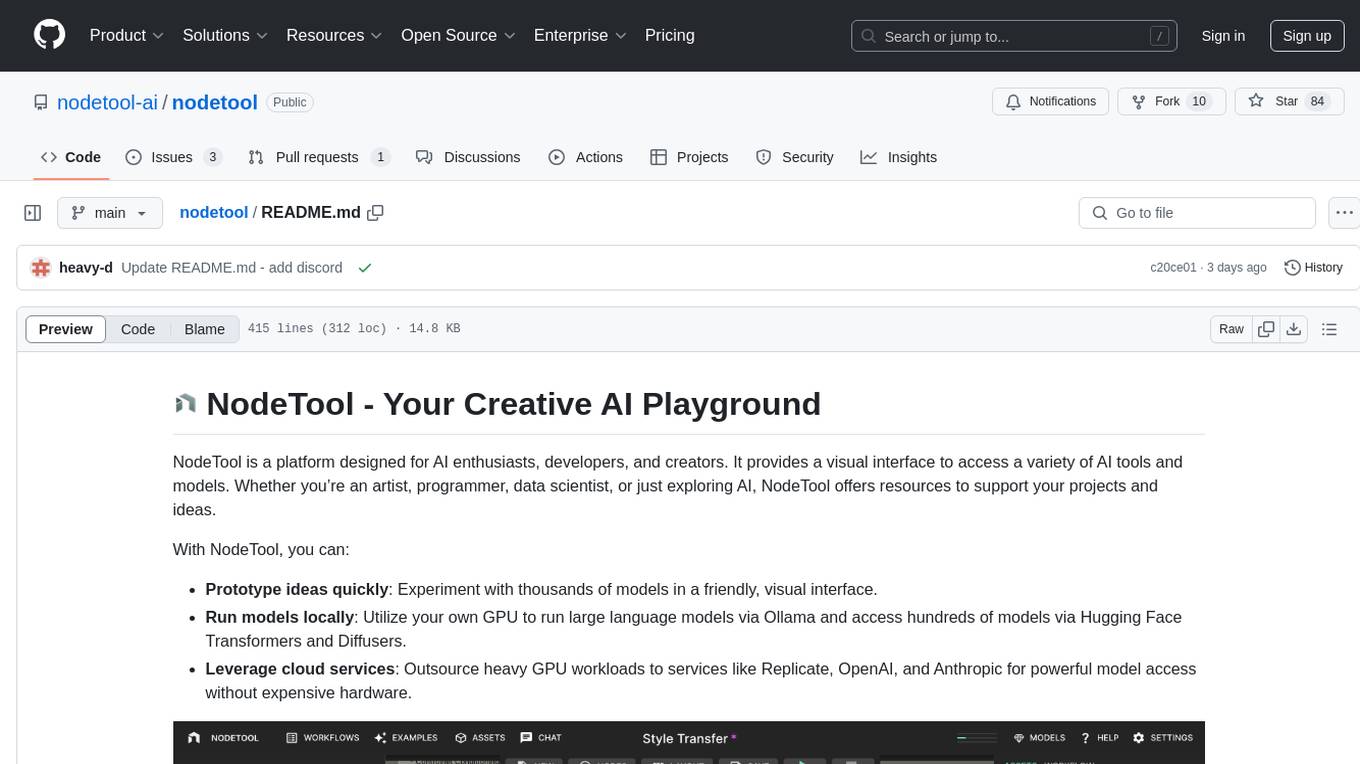
nodetool
NodeTool is a platform designed for AI enthusiasts, developers, and creators, providing a visual interface to access a variety of AI tools and models. It simplifies access to advanced AI technologies, offering resources for content creation, data analysis, automation, and more. With features like a visual editor, seamless integration with leading AI platforms, model manager, and API integration, NodeTool caters to both newcomers and experienced users in the AI field.
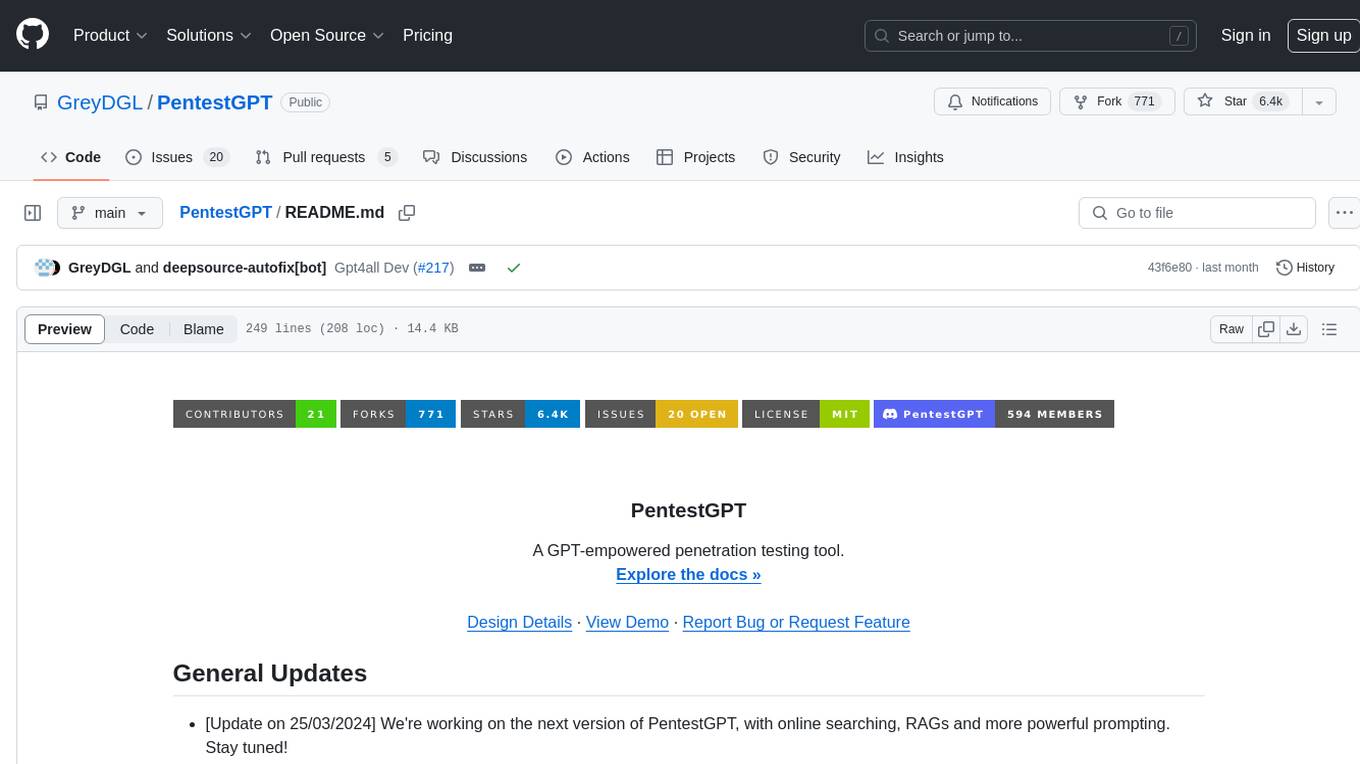
PentestGPT
PentestGPT is a penetration testing tool empowered by ChatGPT, designed to automate the penetration testing process. It operates interactively to guide penetration testers in overall progress and specific operations. The tool supports solving easy to medium HackTheBox machines and other CTF challenges. Users can use PentestGPT to perform tasks like testing connections, using different reasoning models, discussing with the tool, searching on Google, and generating reports. It also supports local LLMs with custom parsers for advanced users.
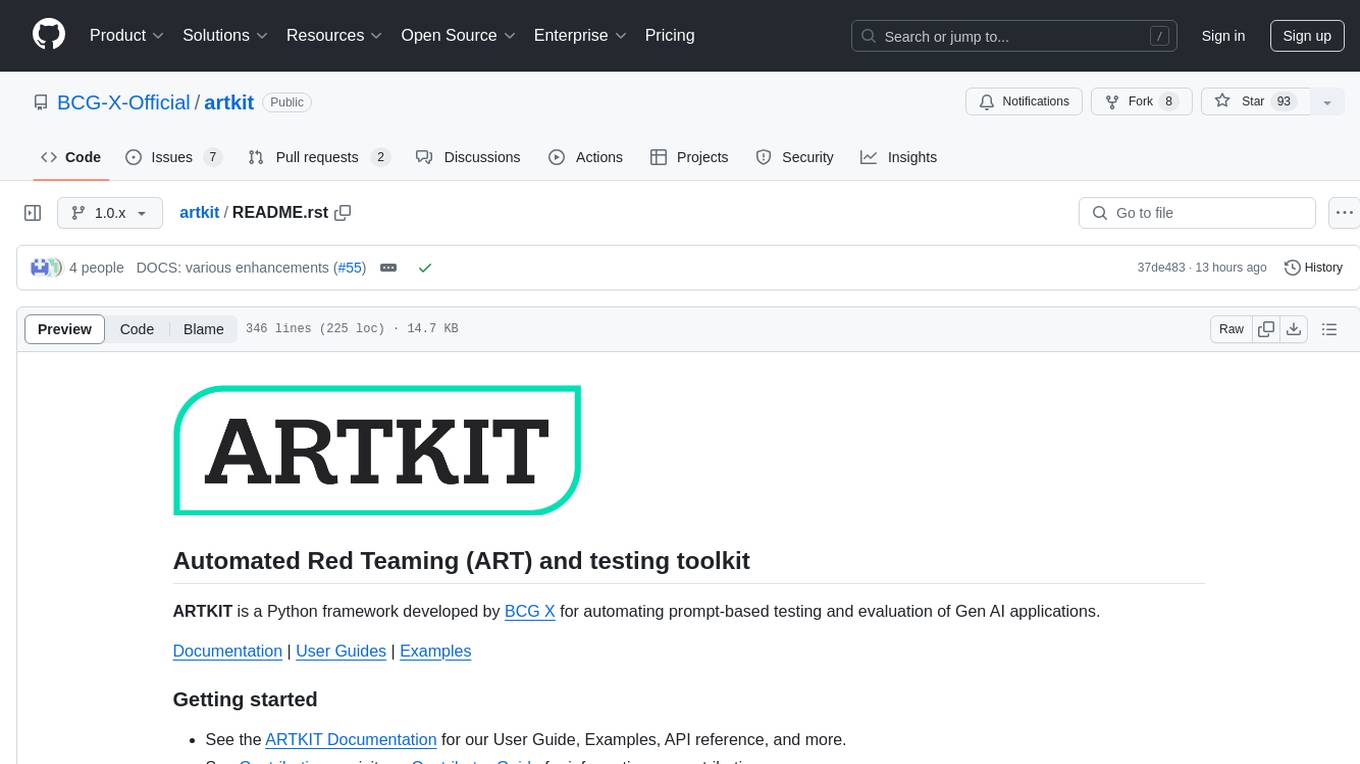
artkit
ARTKIT is a Python framework developed by BCG X for automating prompt-based testing and evaluation of Gen AI applications. It allows users to develop automated end-to-end testing and evaluation pipelines for Gen AI systems, supporting multi-turn conversations and various testing scenarios like Q&A accuracy, brand values, equitability, safety, and security. The framework provides a simple API, asynchronous processing, caching, model agnostic support, end-to-end pipelines, multi-turn conversations, robust data flows, and visualizations. ARTKIT is designed for customization by data scientists and engineers to enhance human-in-the-loop testing and evaluation, emphasizing the importance of tailored testing for each Gen AI use case.
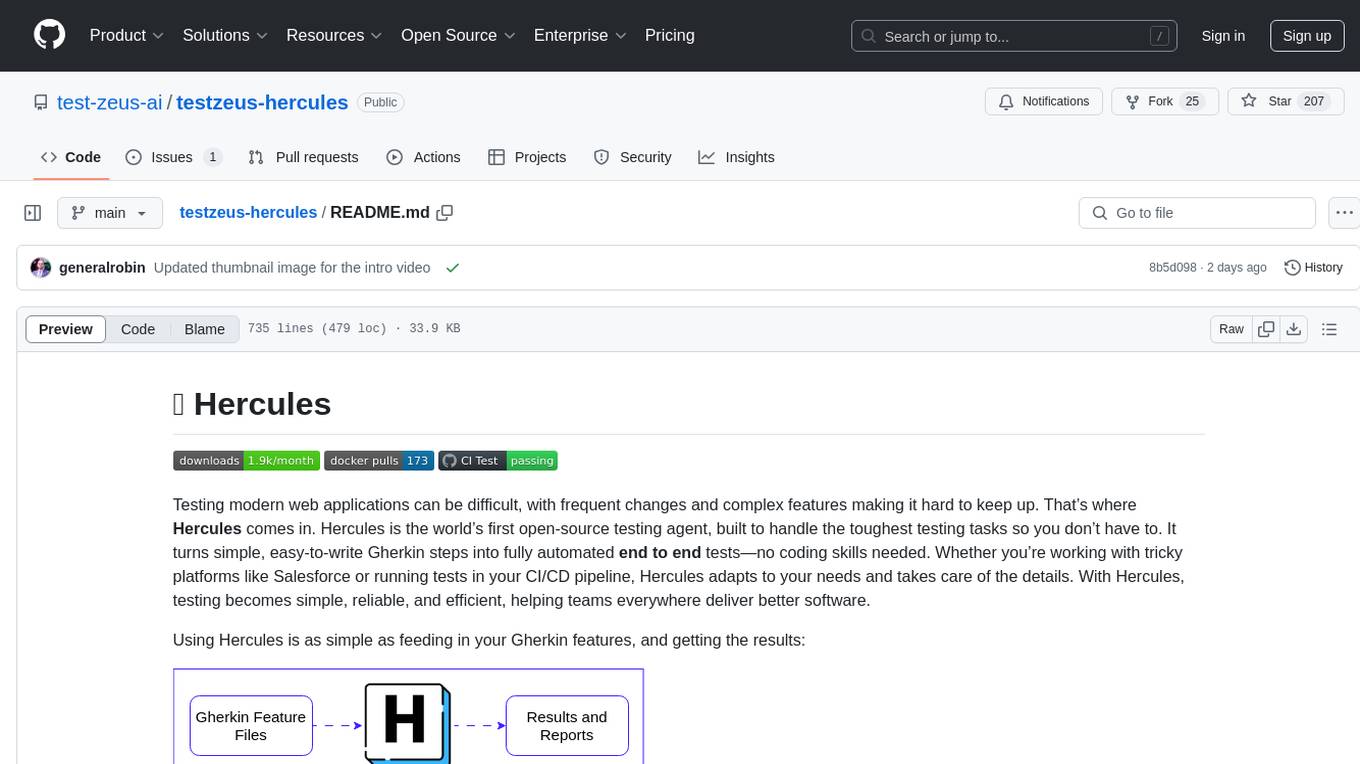
testzeus-hercules
Hercules is the world’s first open-source testing agent designed to handle the toughest testing tasks for modern web applications. It turns simple Gherkin steps into fully automated end-to-end tests, making testing simple, reliable, and efficient. Hercules adapts to various platforms like Salesforce and is suitable for CI/CD pipelines. It aims to democratize and disrupt test automation, making top-tier testing accessible to everyone. The tool is transparent, reliable, and community-driven, empowering teams to deliver better software. Hercules offers multiple ways to get started, including using PyPI package, Docker, or building and running from source code. It supports various AI models, provides detailed installation and usage instructions, and integrates with Nuclei for security testing and WCAG for accessibility testing. The tool is production-ready, open core, and open source, with plans for enhanced LLM support, advanced tooling, improved DOM distillation, community contributions, extensive documentation, and a bounty program.
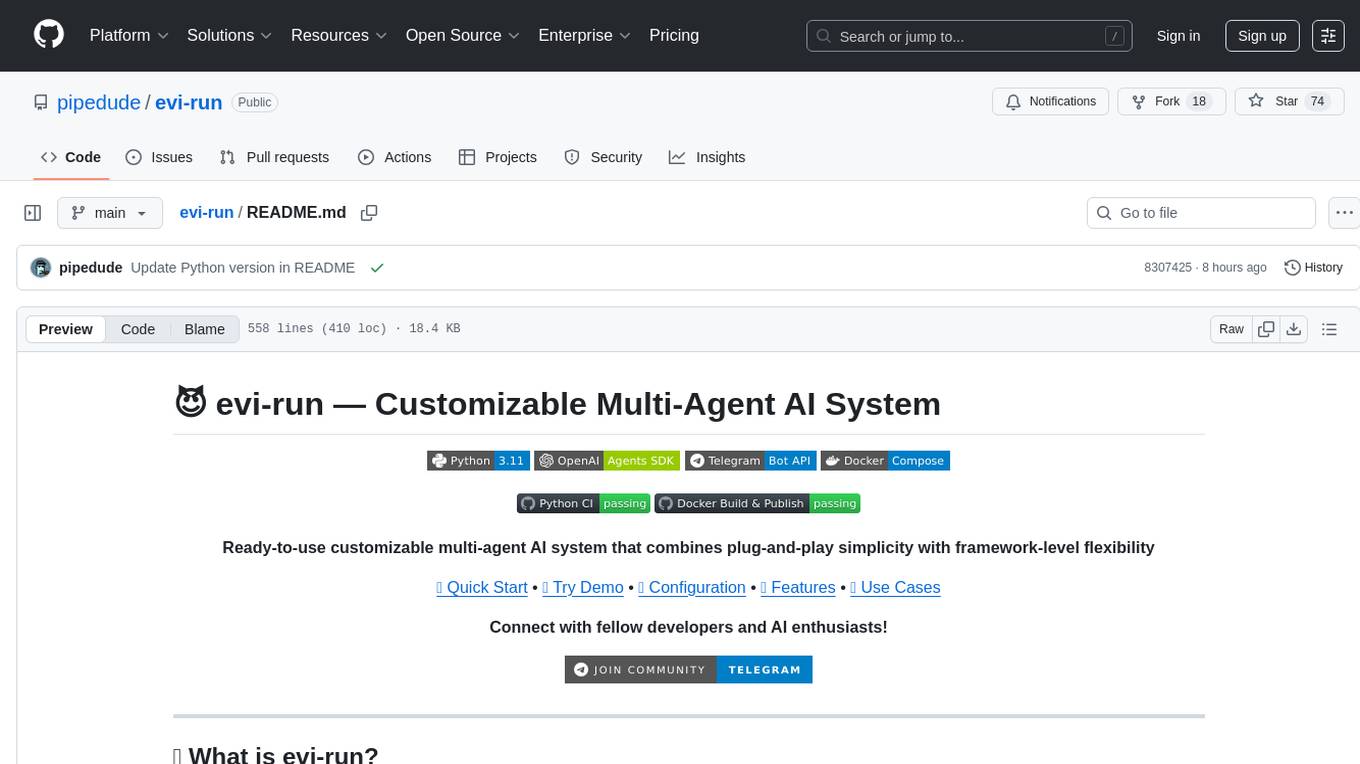
evi-run
evi-run is a powerful, production-ready multi-agent AI system built on Python using the OpenAI Agents SDK. It offers instant deployment, ultimate flexibility, built-in analytics, Telegram integration, and scalable architecture. The system features memory management, knowledge integration, task scheduling, multi-agent orchestration, custom agent creation, deep research, web intelligence, document processing, image generation, DEX analytics, and Solana token swap. It supports flexible usage modes like private, free, and pay mode, with upcoming features including NSFW mode, task scheduler, and automatic limit orders. The technology stack includes Python 3.11, OpenAI Agents SDK, Telegram Bot API, PostgreSQL, Redis, and Docker & Docker Compose for deployment.
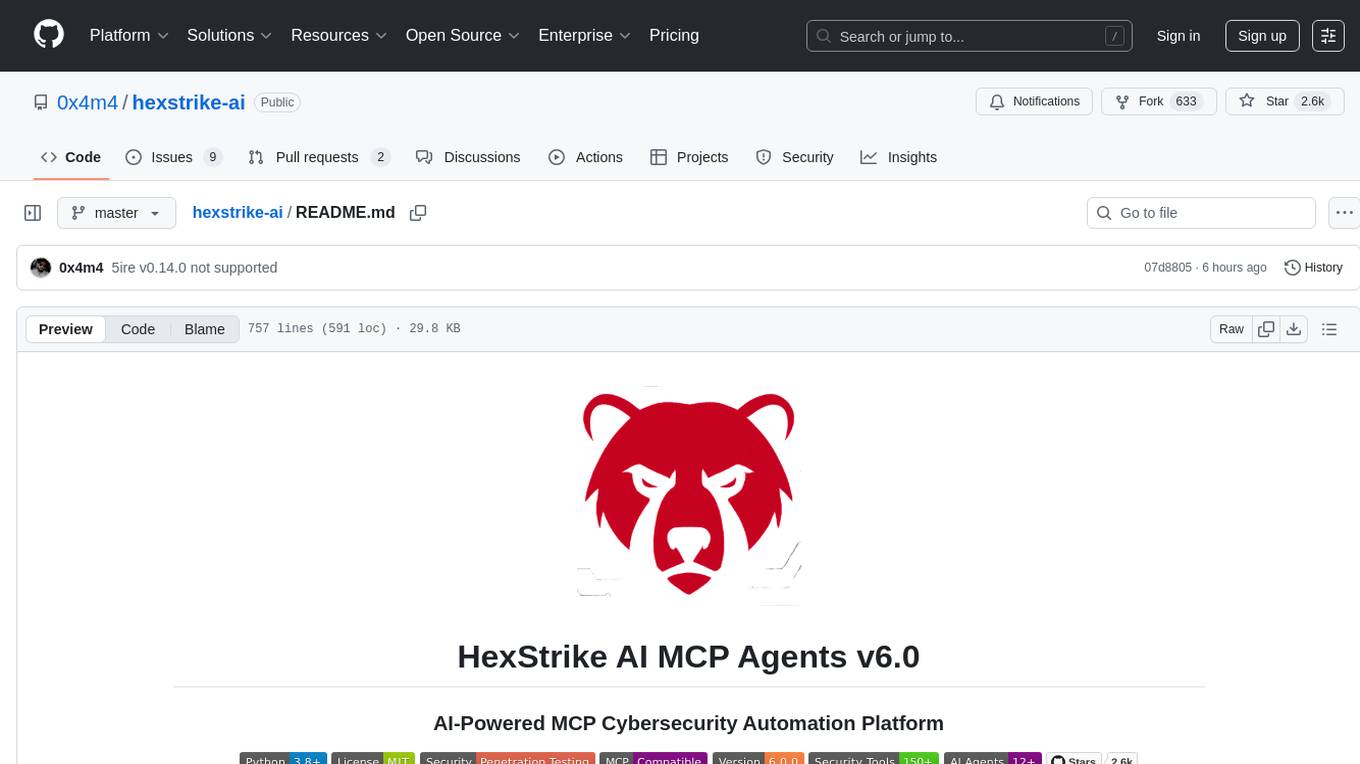
hexstrike-ai
HexStrike AI is an advanced AI-powered penetration testing MCP framework with 150+ security tools and 12+ autonomous AI agents. It features a multi-agent architecture with intelligent decision-making, vulnerability intelligence, and modern visual engine. The platform allows for AI agent connection, intelligent analysis, autonomous execution, real-time adaptation, and advanced reporting. HexStrike AI offers a streamlined installation process, Docker container support, 250+ specialized AI agents/tools, native desktop client, advanced web automation, memory optimization, enhanced error handling, and bypassing limitations.

supervisely
Supervisely is a computer vision platform that provides a range of tools and services for developing and deploying computer vision solutions. It includes a data labeling platform, a model training platform, and a marketplace for computer vision apps. Supervisely is used by a variety of organizations, including Fortune 500 companies, research institutions, and government agencies.
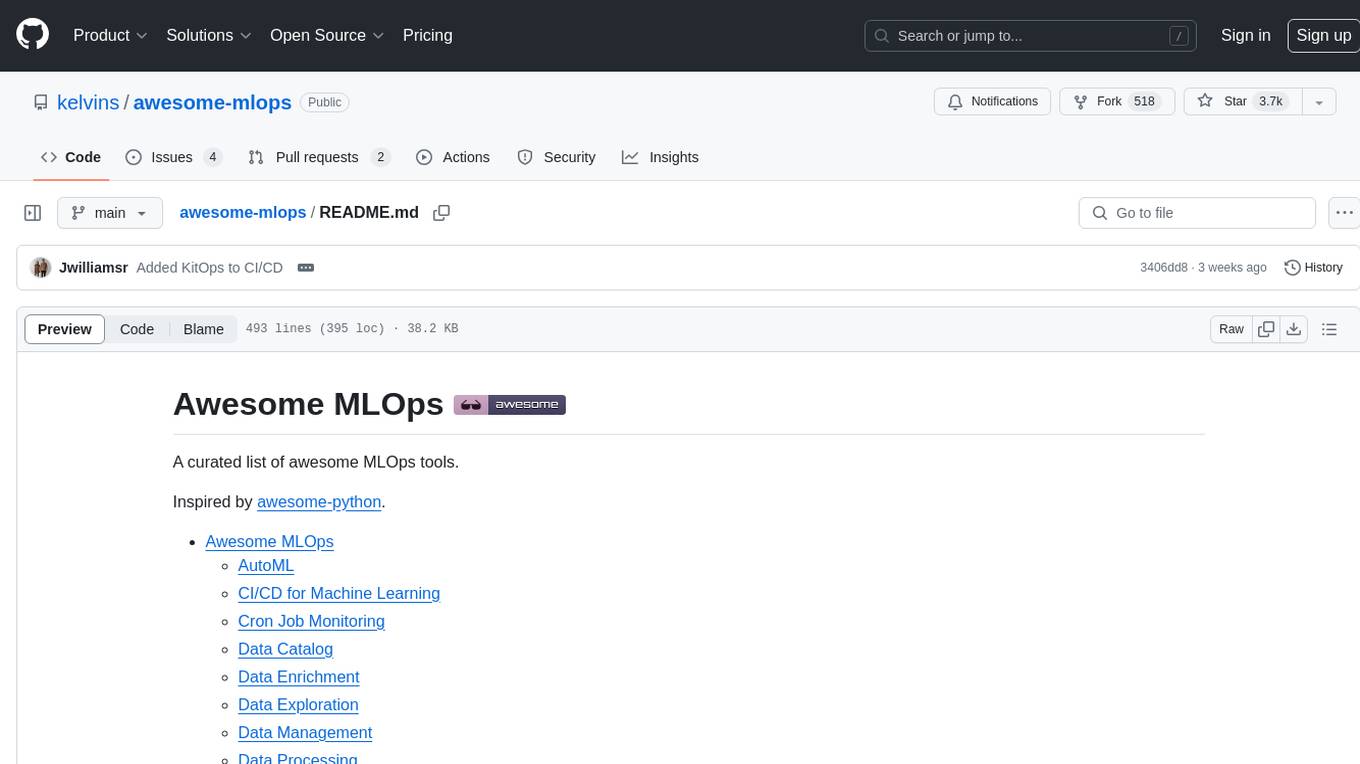
awesome-mlops
Awesome MLOps is a curated list of tools related to Machine Learning Operations, covering areas such as AutoML, CI/CD for Machine Learning, Data Cataloging, Data Enrichment, Data Exploration, Data Management, Data Processing, Data Validation, Data Visualization, Drift Detection, Feature Engineering, Feature Store, Hyperparameter Tuning, Knowledge Sharing, Machine Learning Platforms, Model Fairness and Privacy, Model Interpretability, Model Lifecycle, Model Serving, Model Testing & Validation, Optimization Tools, Simplification Tools, Visual Analysis and Debugging, and Workflow Tools. The repository provides a comprehensive collection of tools and resources for individuals and teams working in the field of MLOps.
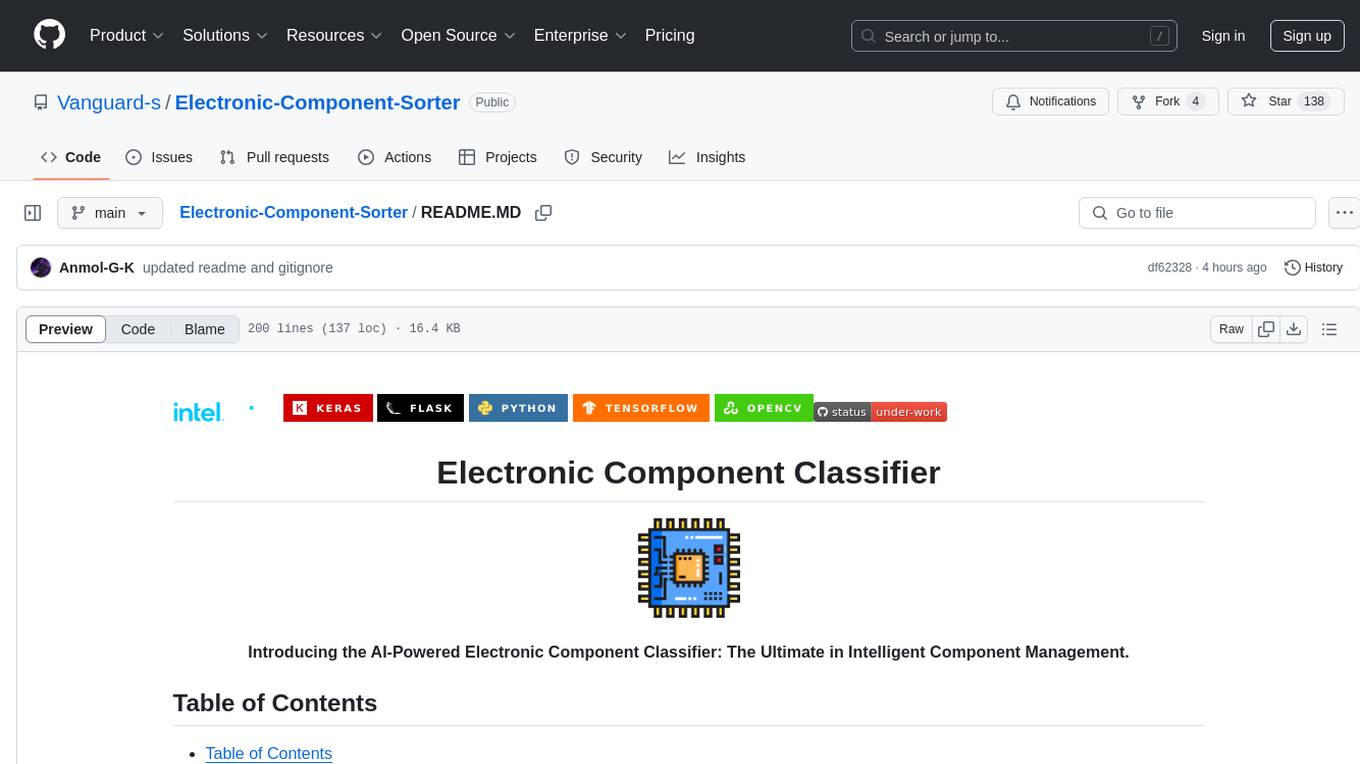
Electronic-Component-Sorter
The Electronic Component Classifier is a project that uses machine learning and artificial intelligence to automate the identification and classification of electrical and electronic components. It features component classification into seven classes, user-friendly design, and integration with Flask for a user-friendly interface. The project aims to reduce human error in component identification, make the process safer and more reliable, and potentially help visually impaired individuals in identifying electronic components.
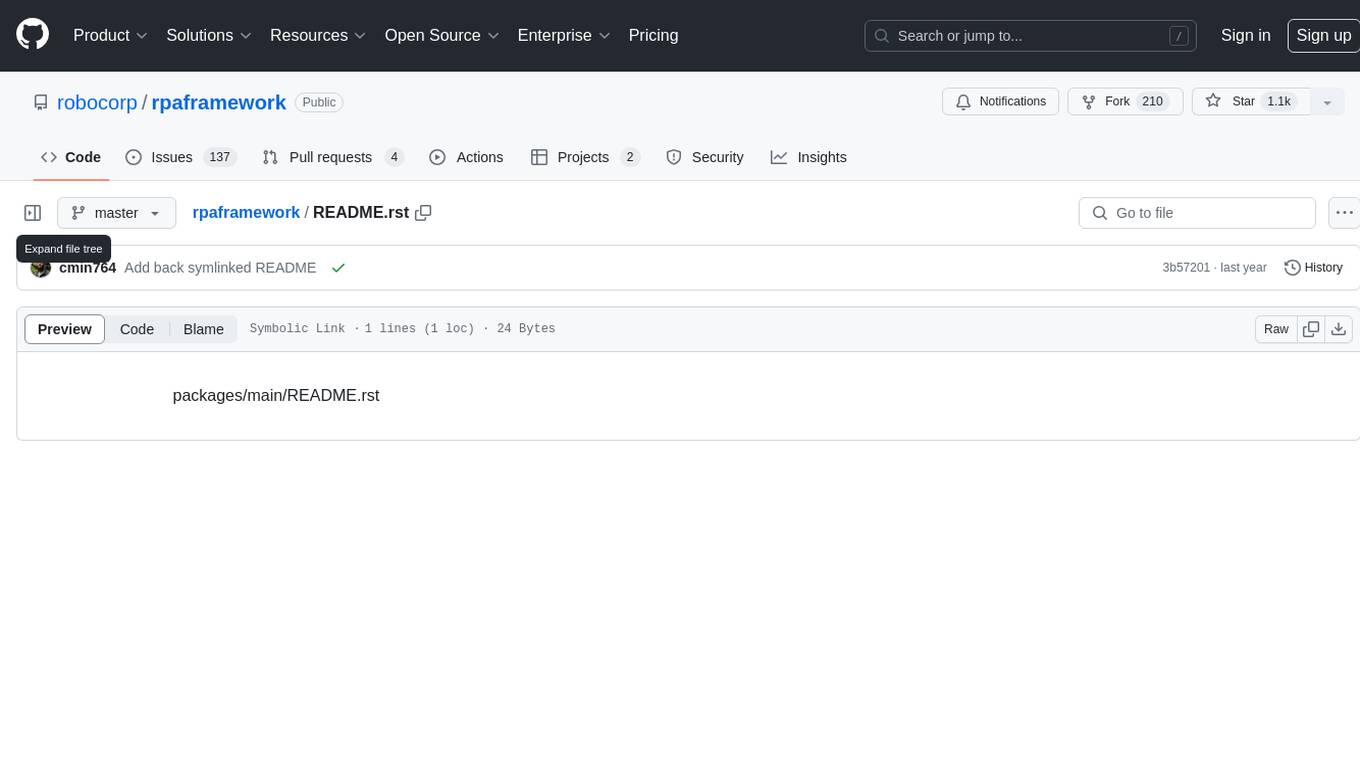
rpaframework
RPA Framework is an open-source collection of libraries and tools for Robotic Process Automation (RPA), designed to be used with Robot Framework and Python. It offers well-documented core libraries for Software Robot Developers, optimized for Robocorp Control Room and Developer Tools, and accepts external contributions. The project includes various libraries for tasks like archiving, browser automation, date/time manipulations, cloud services integration, encryption operations, database interactions, desktop automation, document processing, email operations, Excel manipulation, file system operations, FTP interactions, web API interactions, image manipulation, AI services, and more. The development of the repository is Python-based and requires Python version 3.8+, with tooling based on poetry and invoke for compiling, building, and running the package. The project is licensed under the Apache License 2.0.

skyvern
Skyvern automates browser-based workflows using LLMs and computer vision. It provides a simple API endpoint to fully automate manual workflows, replacing brittle or unreliable automation solutions. Traditional approaches to browser automations required writing custom scripts for websites, often relying on DOM parsing and XPath-based interactions which would break whenever the website layouts changed. Instead of only relying on code-defined XPath interactions, Skyvern adds computer vision and LLMs to the mix to parse items in the viewport in real-time, create a plan for interaction and interact with them. This approach gives us a few advantages: 1. Skyvern can operate on websites it’s never seen before, as it’s able to map visual elements to actions necessary to complete a workflow, without any customized code 2. Skyvern is resistant to website layout changes, as there are no pre-determined XPaths or other selectors our system is looking for while trying to navigate 3. Skyvern leverages LLMs to reason through interactions to ensure we can cover complex situations. Examples include: 1. If you wanted to get an auto insurance quote from Geico, the answer to a common question “Were you eligible to drive at 18?” could be inferred from the driver receiving their license at age 16 2. If you were doing competitor analysis, it’s understanding that an Arnold Palmer 22 oz can at 7/11 is almost definitely the same product as a 23 oz can at Gopuff (even though the sizes are slightly different, which could be a rounding error!) Want to see examples of Skyvern in action? Jump to #real-world-examples-of- skyvern
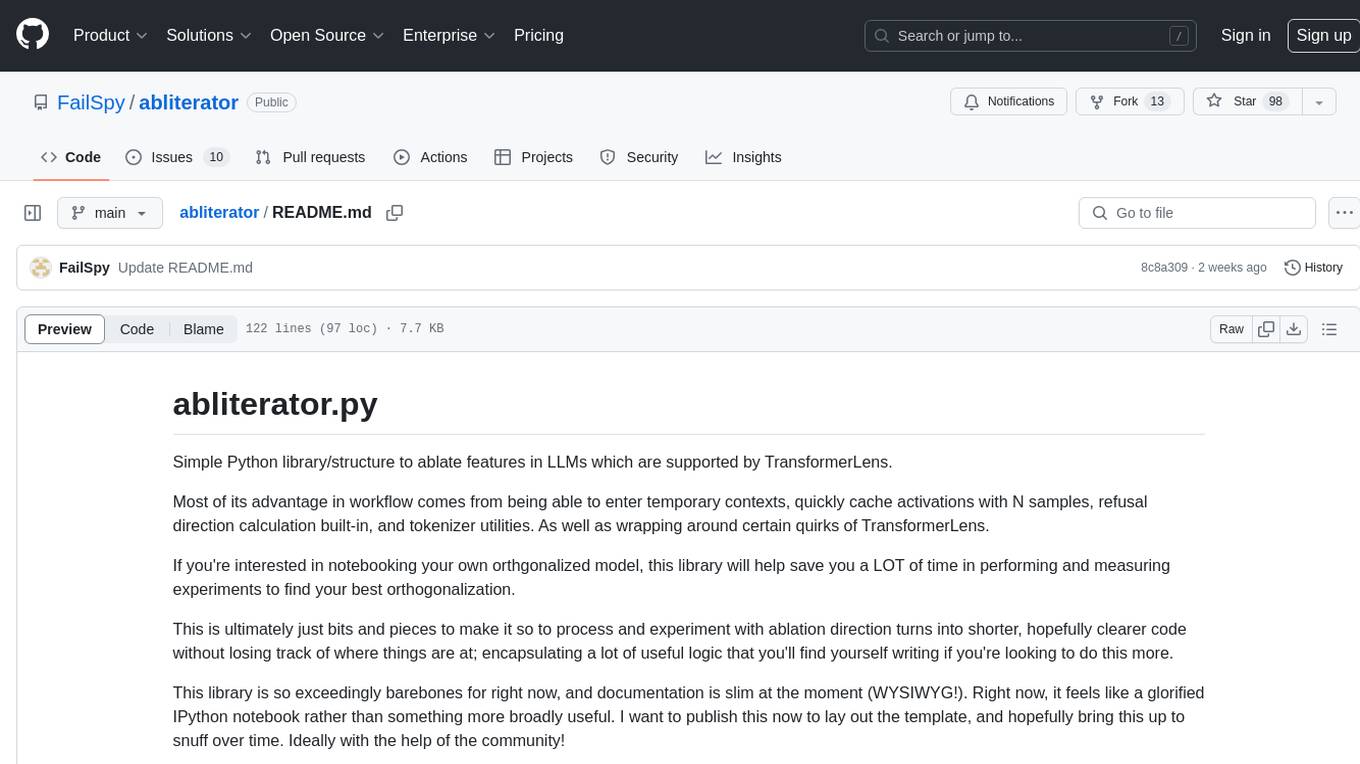
abliterator
abliterator.py is a simple Python library/structure designed to ablate features in large language models (LLMs) supported by TransformerLens. It provides capabilities to enter temporary contexts, cache activations with N samples, calculate refusal directions, and includes tokenizer utilities. The library aims to streamline the process of experimenting with ablation direction turns by encapsulating useful logic and minimizing code complexity. While currently basic and lacking comprehensive documentation, the library serves well for personal workflows and aims to expand beyond feature ablation to augmentation and additional features over time with community support.
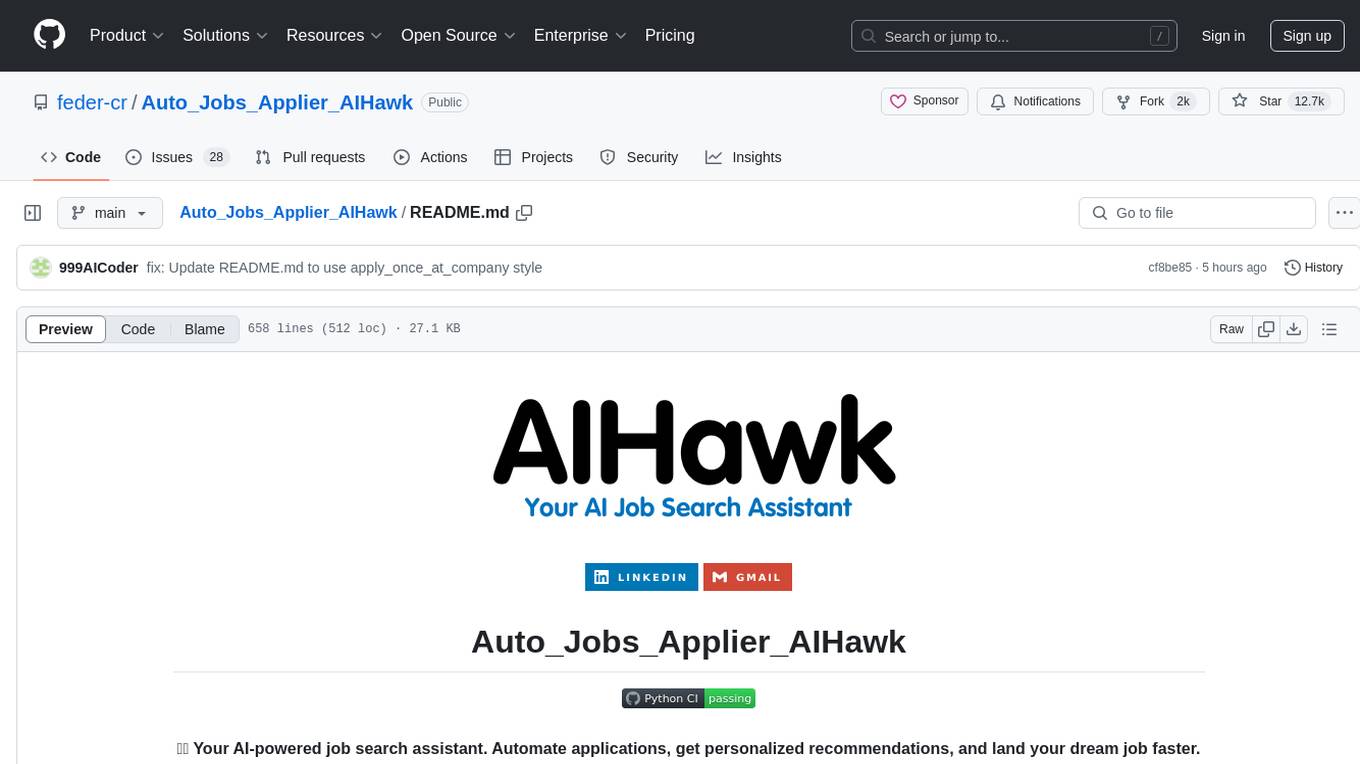
Auto_Jobs_Applier_AIHawk
Auto_Jobs_Applier_AIHawk is an AI-powered job search assistant that revolutionizes the job search and application process. It automates application submissions, provides personalized recommendations, and enhances the chances of landing a dream job. The tool offers features like intelligent job search automation, rapid application submission, AI-powered personalization, volume management with quality, intelligent filtering, dynamic resume generation, and secure data handling. It aims to address the challenges of modern job hunting by saving time, increasing efficiency, and improving application quality.
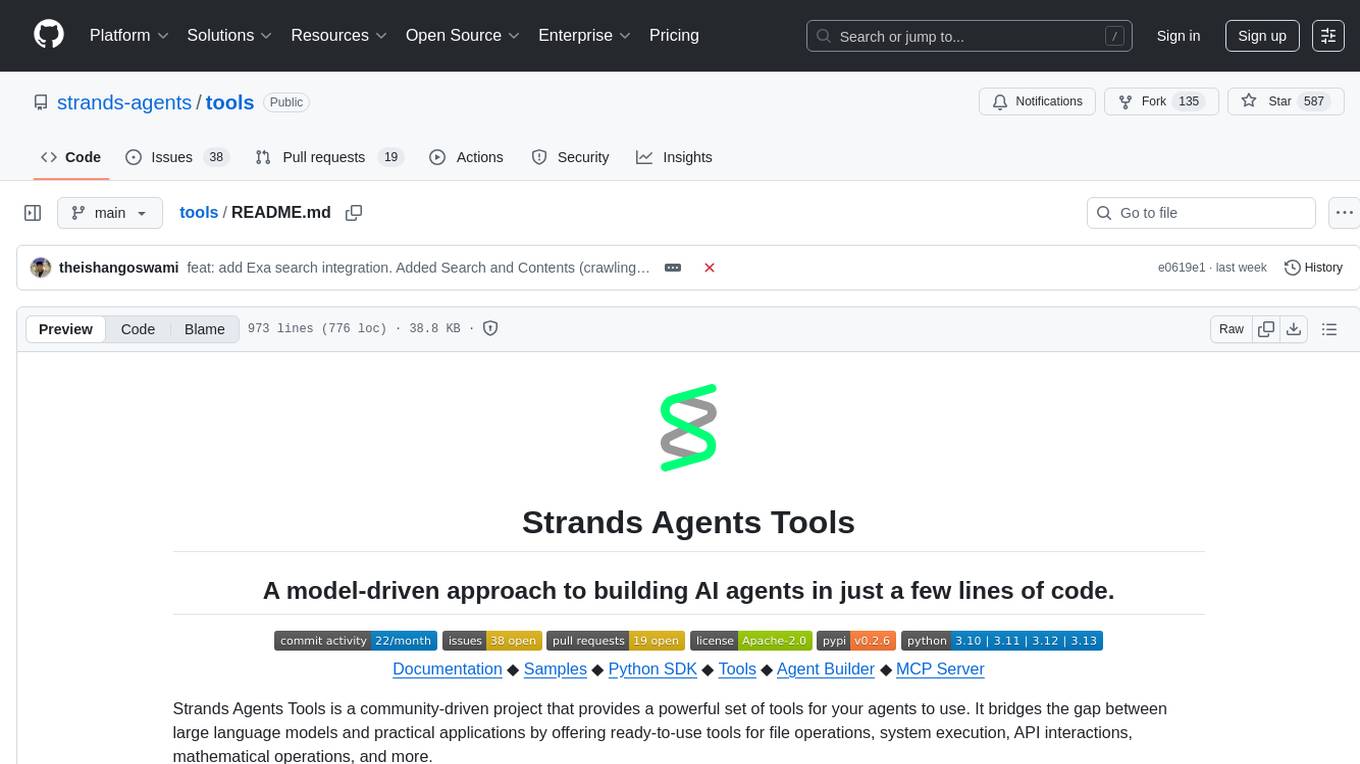
tools
Strands Agents Tools is a community-driven project that provides a powerful set of tools for your agents to use. It bridges the gap between large language models and practical applications by offering ready-to-use tools for file operations, system execution, API interactions, mathematical operations, and more. The tools cover a wide range of functionalities including file operations, shell integration, memory storage, web infrastructure, HTTP client, Slack client, Python execution, mathematical tools, AWS integration, image and video processing, audio output, environment management, task scheduling, advanced reasoning, swarm intelligence, dynamic MCP client, parallel tool execution, browser automation, diagram creation, RSS feed management, and computer automation.
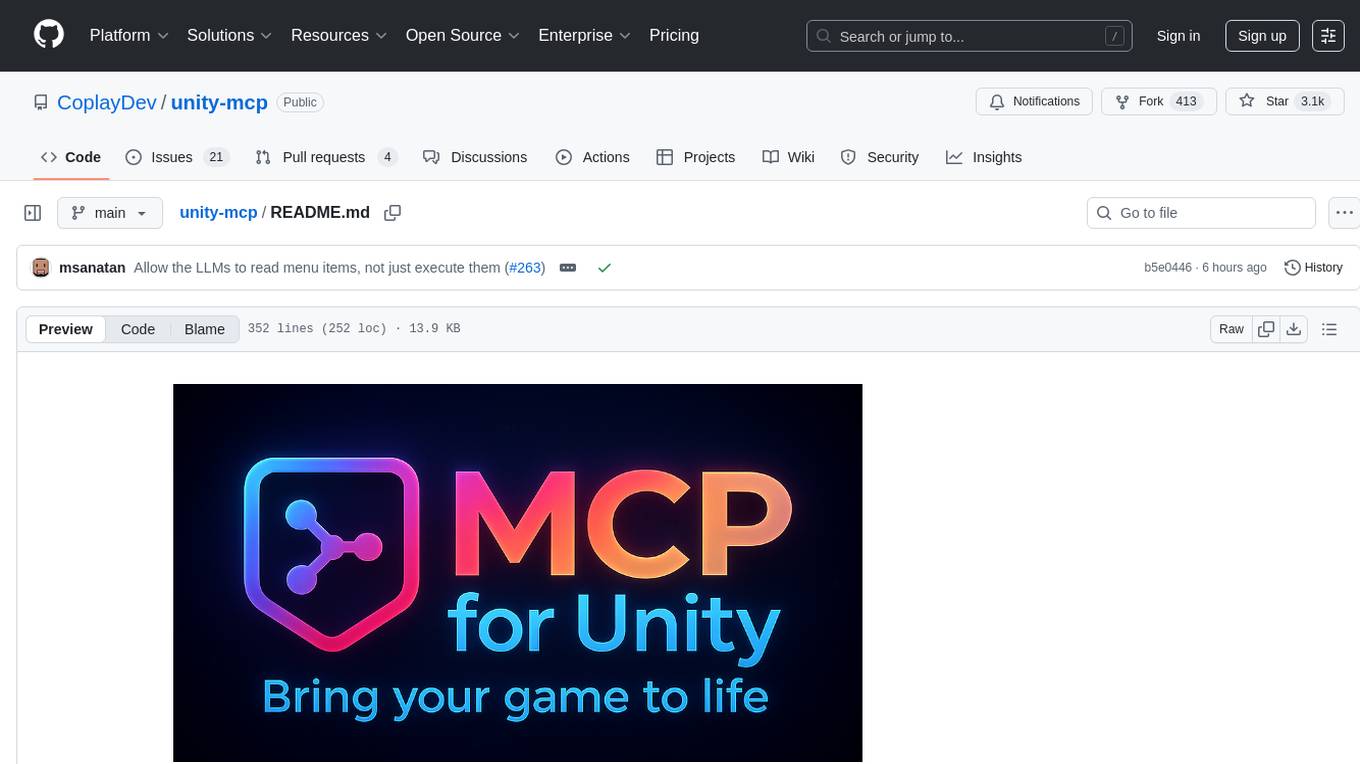
unity-mcp
MCP for Unity is a tool that acts as a bridge, enabling AI assistants to interact with the Unity Editor via a local MCP Client. Users can instruct their LLM to manage assets, scenes, scripts, and automate tasks within Unity. The tool offers natural language control, powerful tools for asset management, scene manipulation, and automation of workflows. It is extensible and designed to work with various MCP Clients, providing a range of functions for precise text edits, script management, GameObject operations, and more.
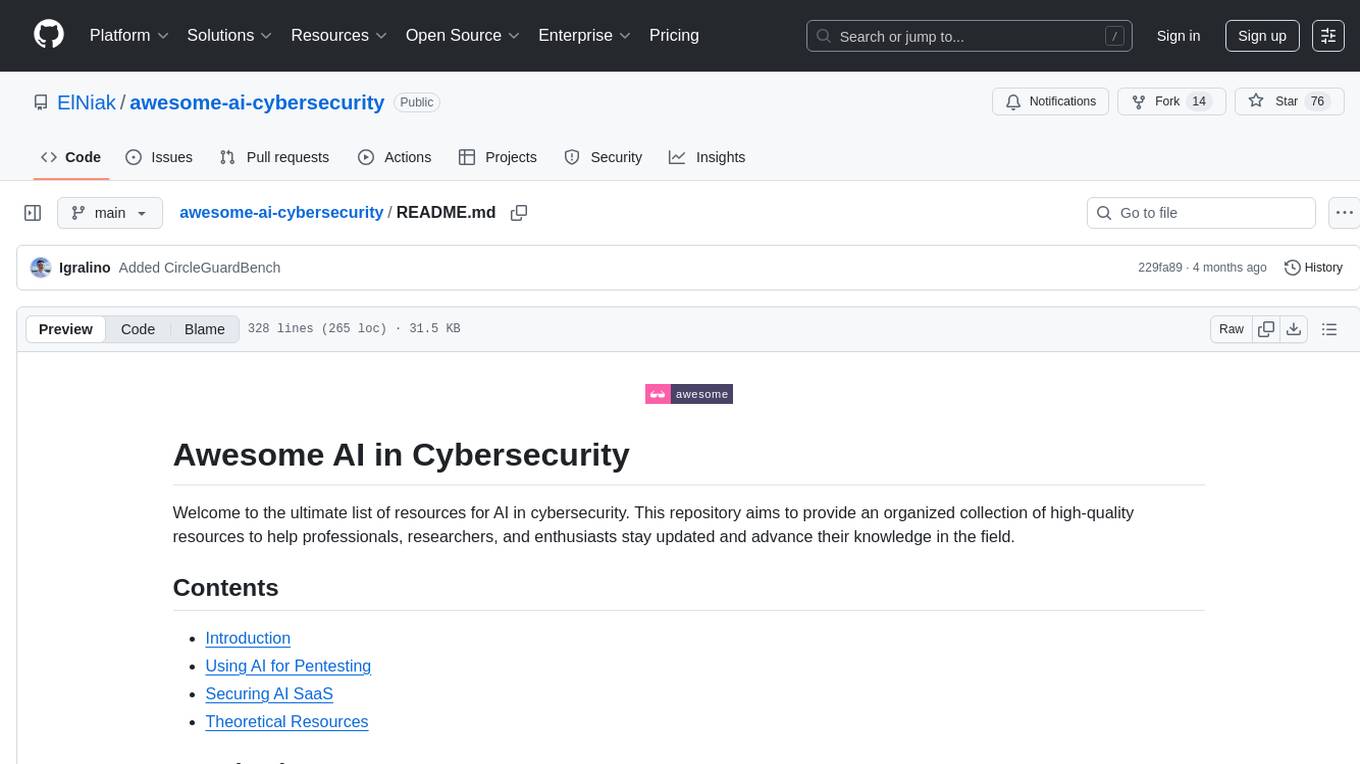
awesome-ai-cybersecurity
This repository is a comprehensive collection of resources for utilizing AI in cybersecurity. It covers various aspects such as prediction, prevention, detection, response, monitoring, and more. The resources include tools, frameworks, case studies, best practices, tutorials, and research papers. The repository aims to assist professionals, researchers, and enthusiasts in staying updated and advancing their knowledge in the field of AI cybersecurity.
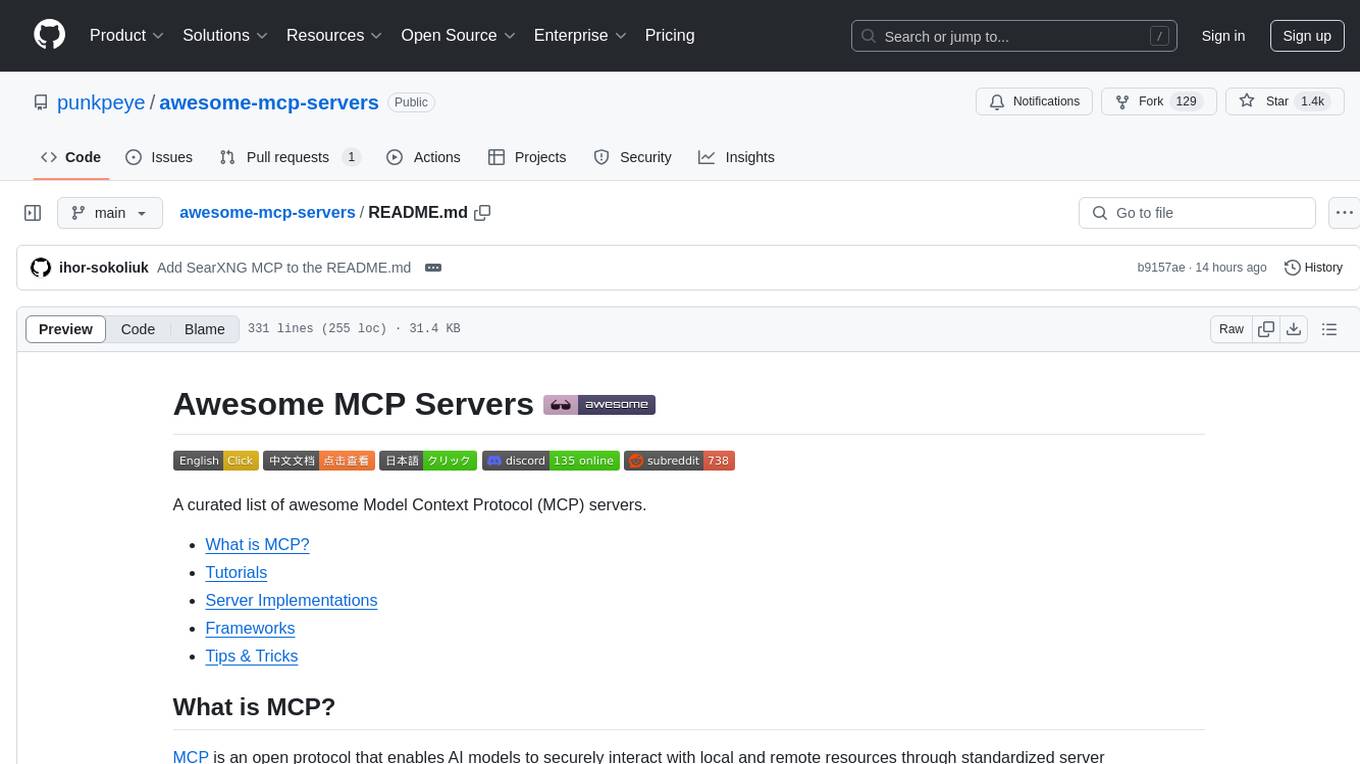
awesome-mcp-servers
Awesome MCP Servers is a curated list of Model Context Protocol (MCP) servers that enable AI models to securely interact with local and remote resources through standardized server implementations. The list includes production-ready and experimental servers that extend AI capabilities through file access, database connections, API integrations, and other contextual services.
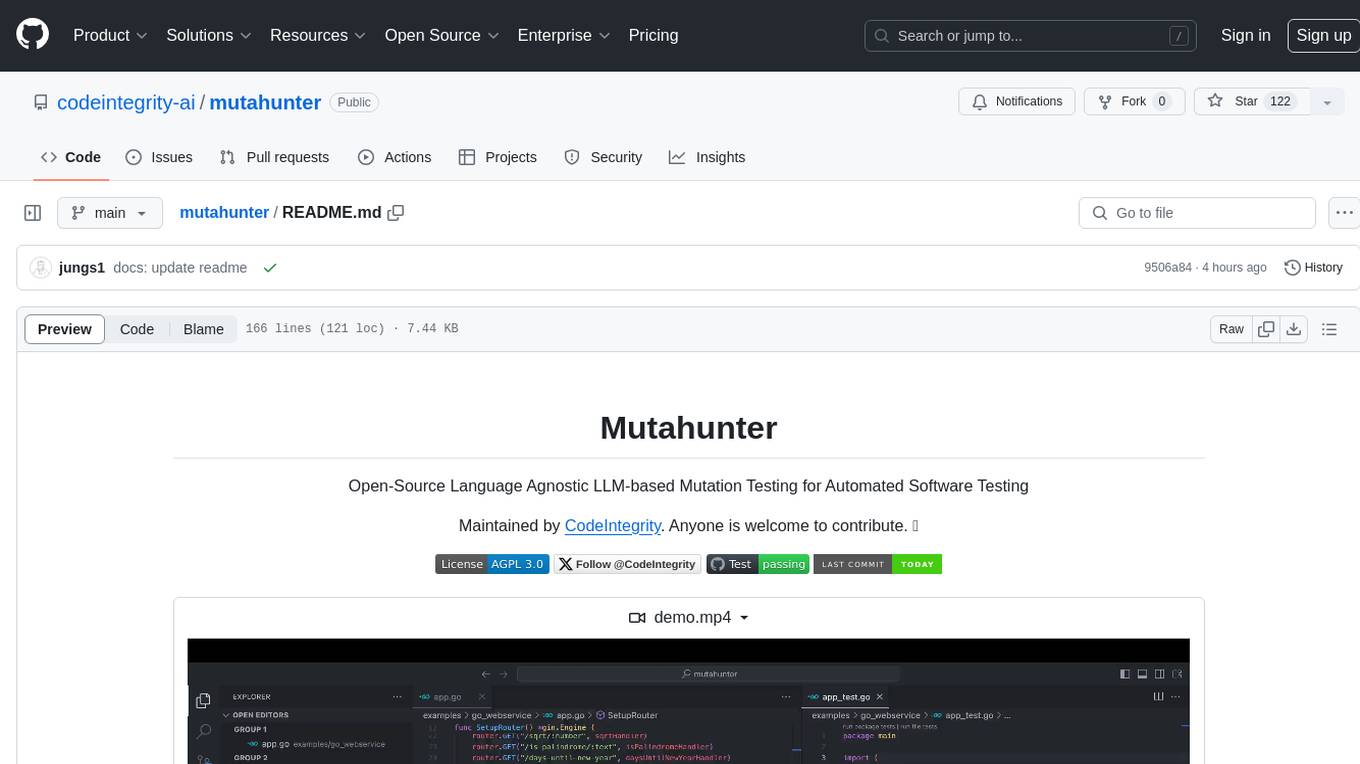
mutahunter
Mutahunter is an open-source language-agnostic mutation testing tool maintained by CodeIntegrity. It leverages LLM models to inject context-aware faults into codebase, ensuring comprehensive testing. The tool aims to empower companies and developers to enhance test suites and improve software quality by verifying the effectiveness of test cases through creating mutants in the code and checking if the test cases can catch these changes. Mutahunter provides detailed reports on mutation coverage, killed mutants, and survived mutants, enabling users to identify potential weaknesses in their test suites.
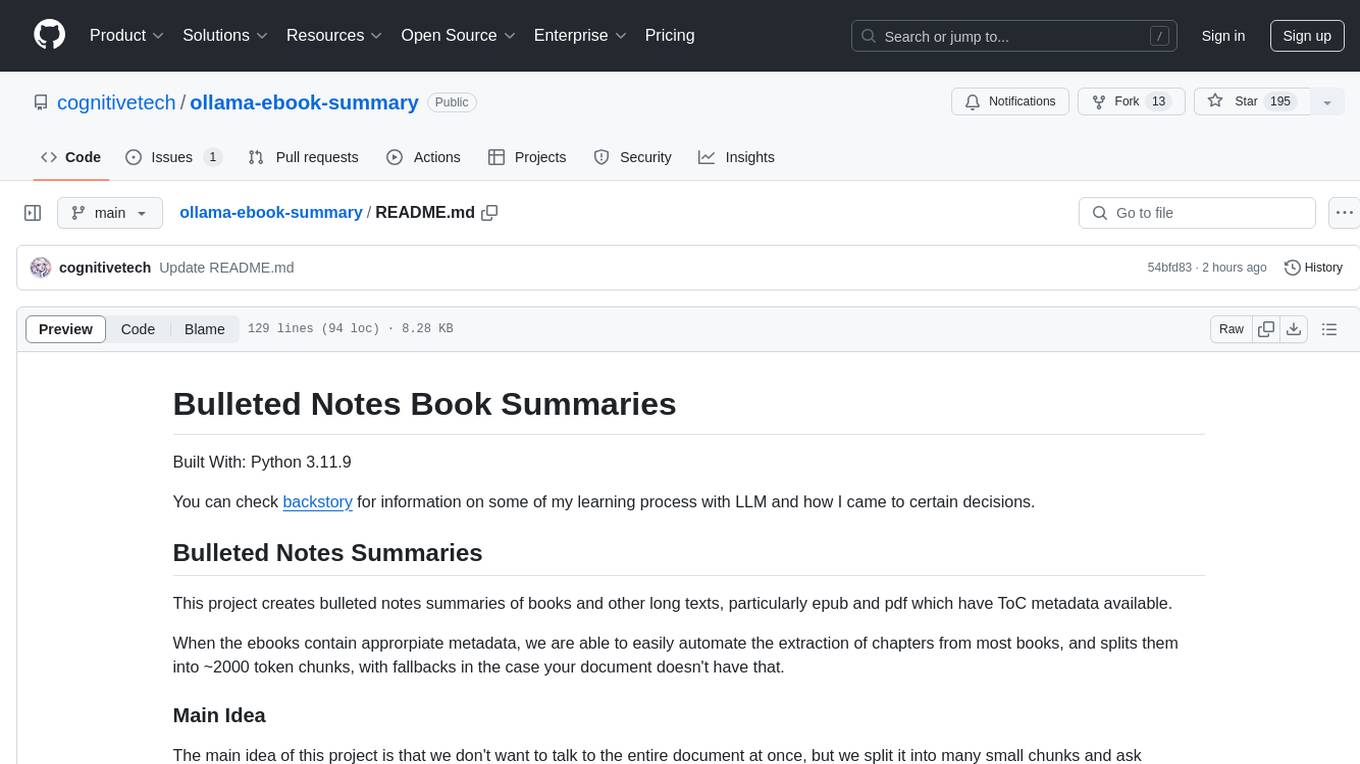
ollama-ebook-summary
The 'ollama-ebook-summary' repository is a Python project that creates bulleted notes summaries of books and long texts, particularly in epub and pdf formats with ToC metadata. It automates the extraction of chapters, splits them into ~2000 token chunks, and allows for asking arbitrary questions to parts of the text for improved granularity of response. The tool aims to provide summaries for each page of a book rather than a one-page summary of the entire document, enhancing content curation and knowledge sharing capabilities.
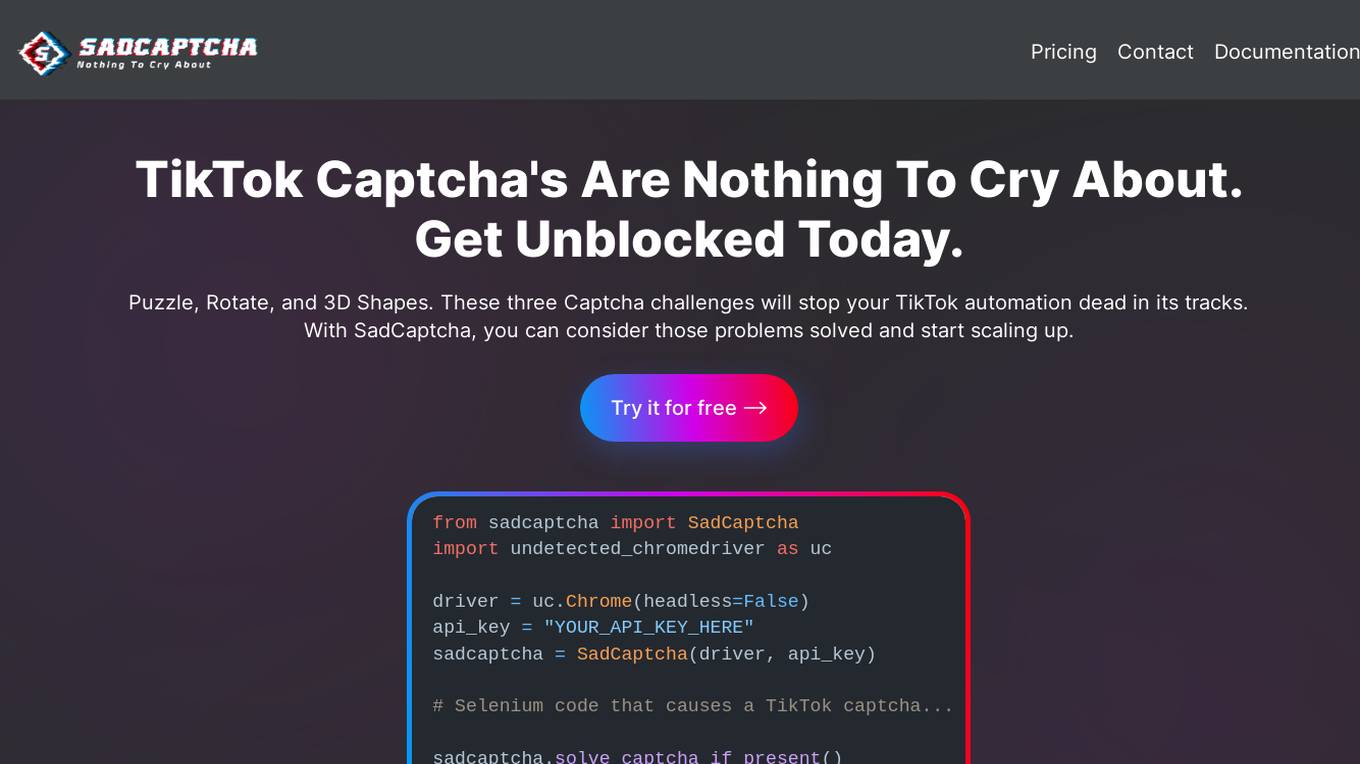
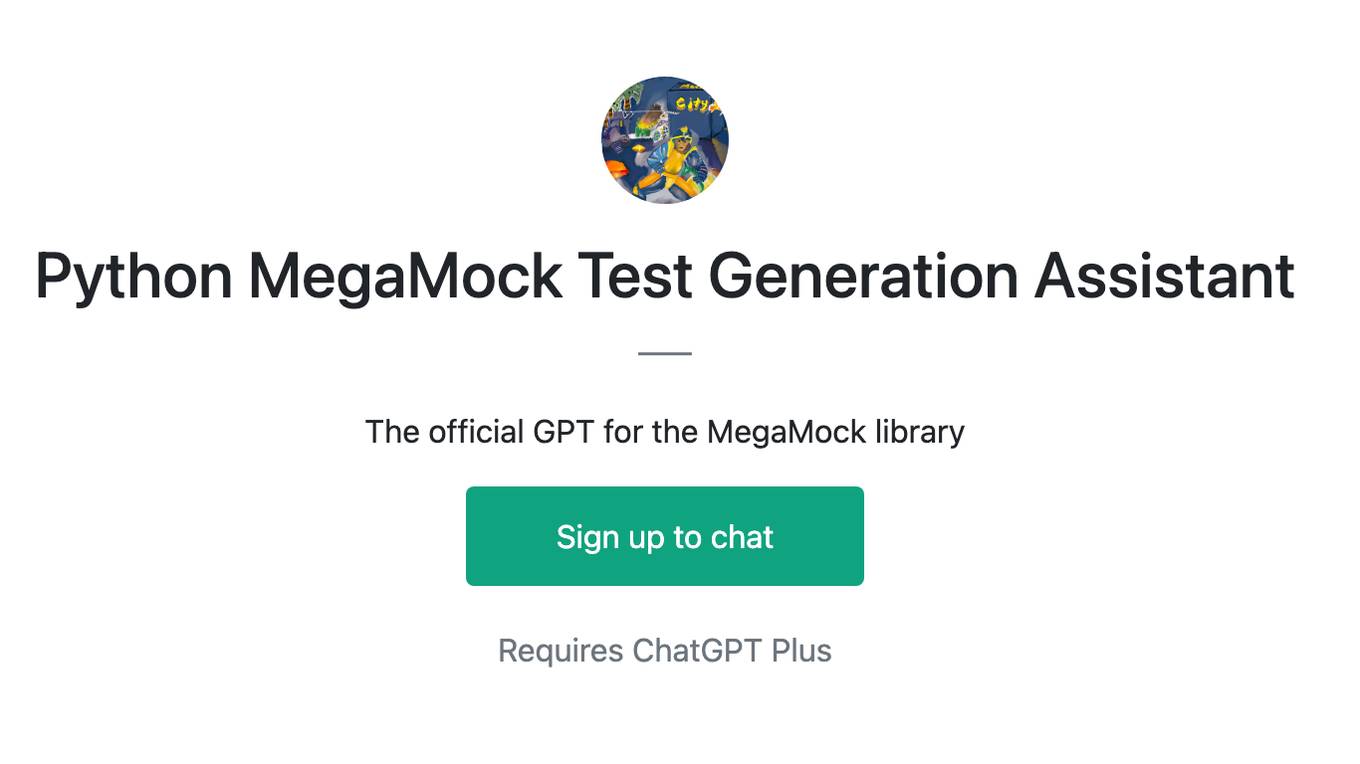
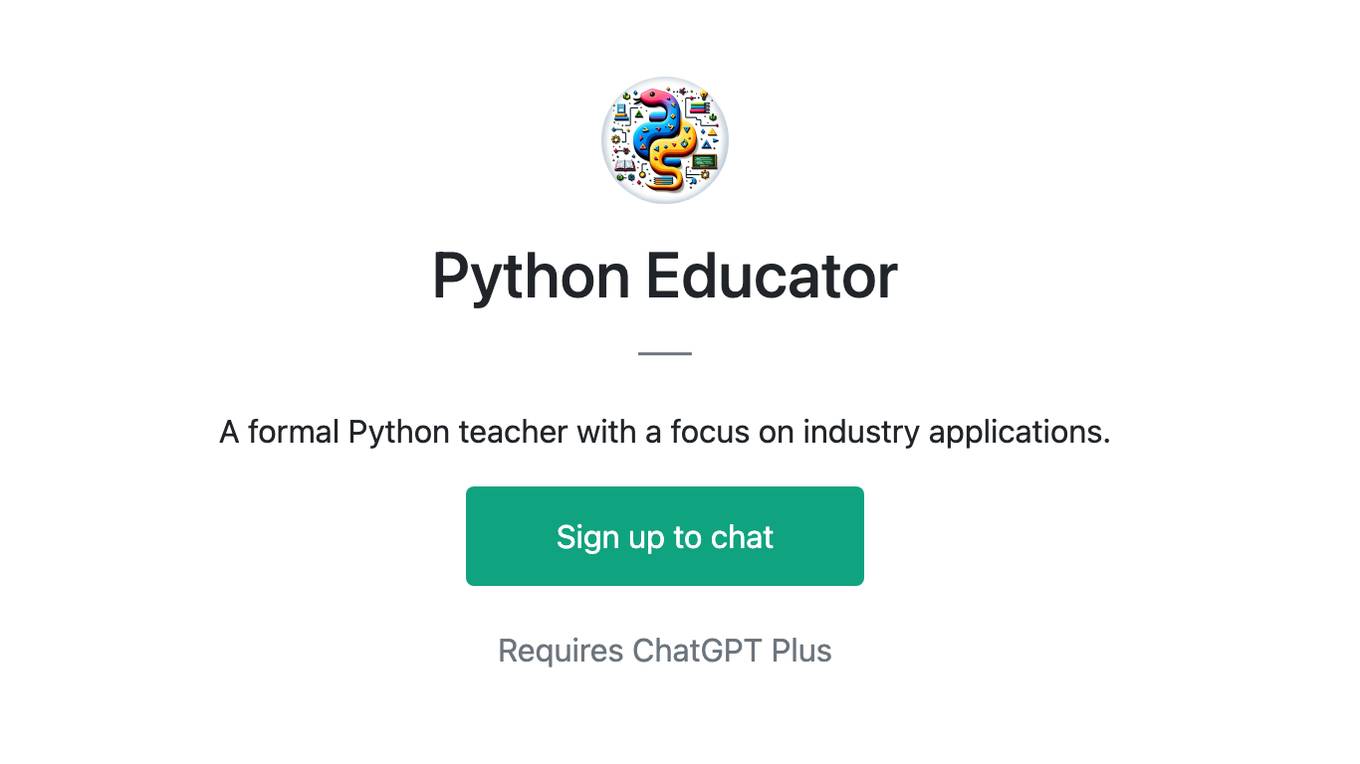
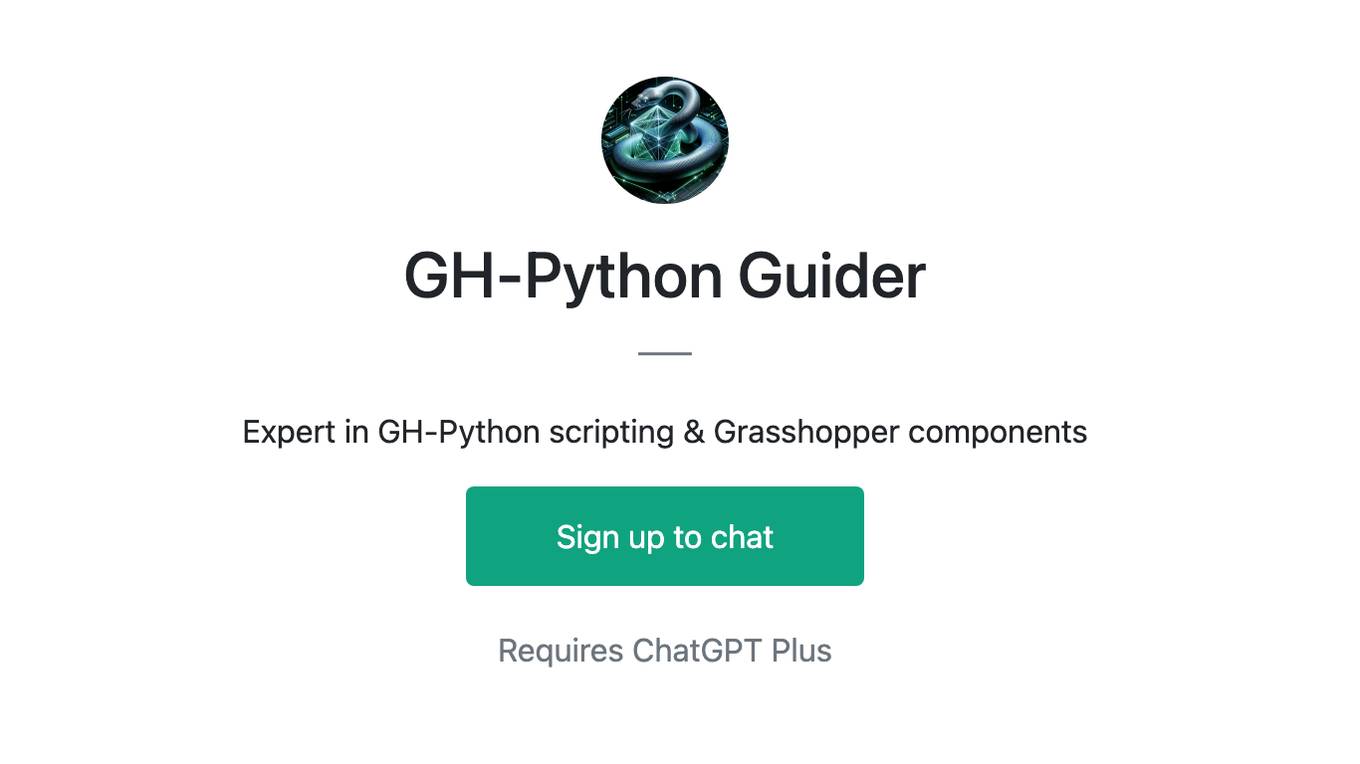
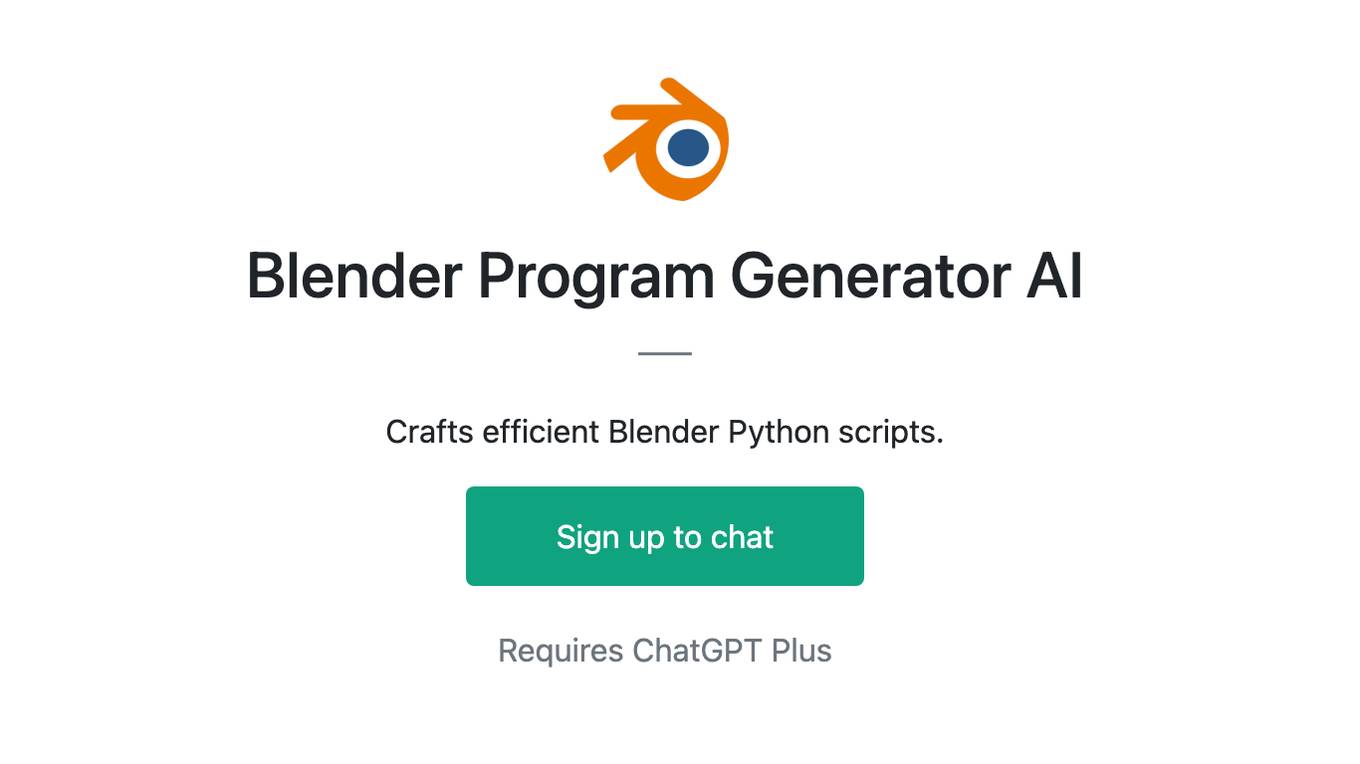
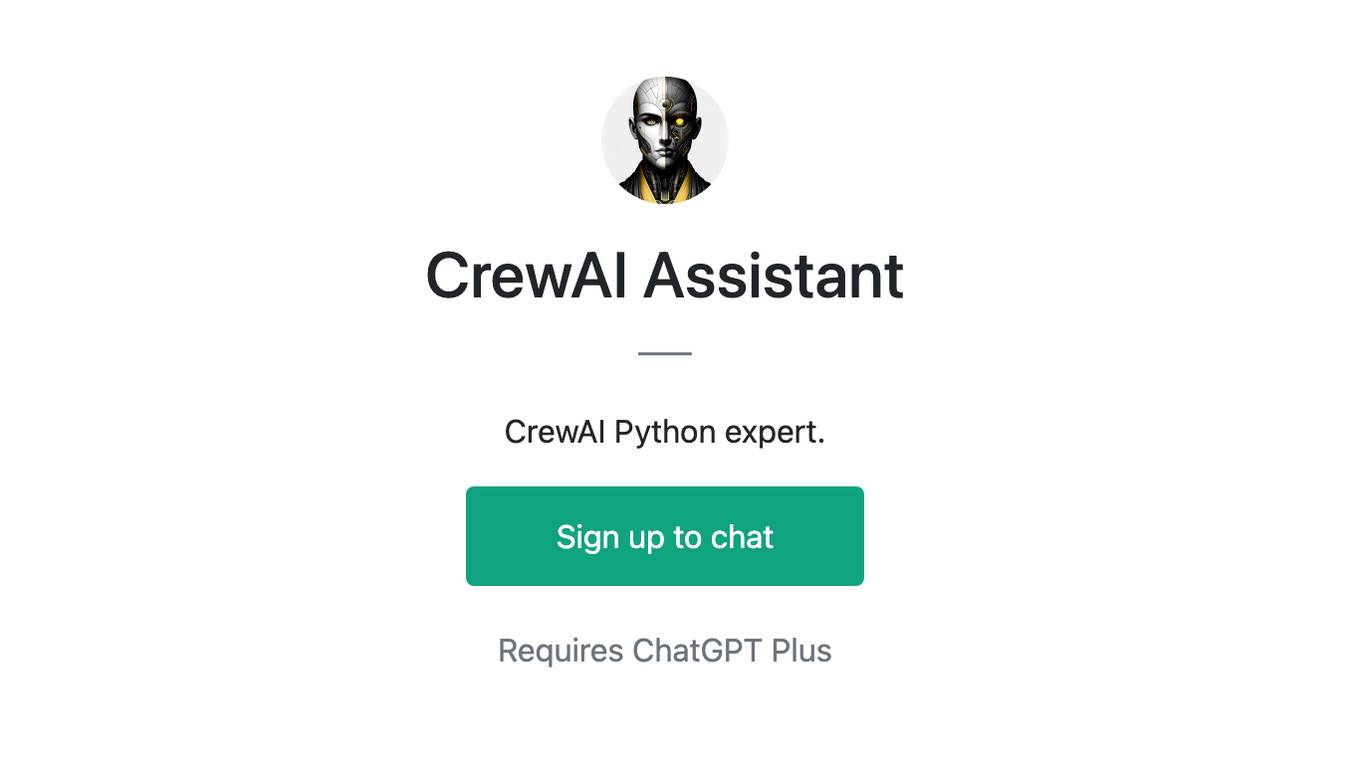
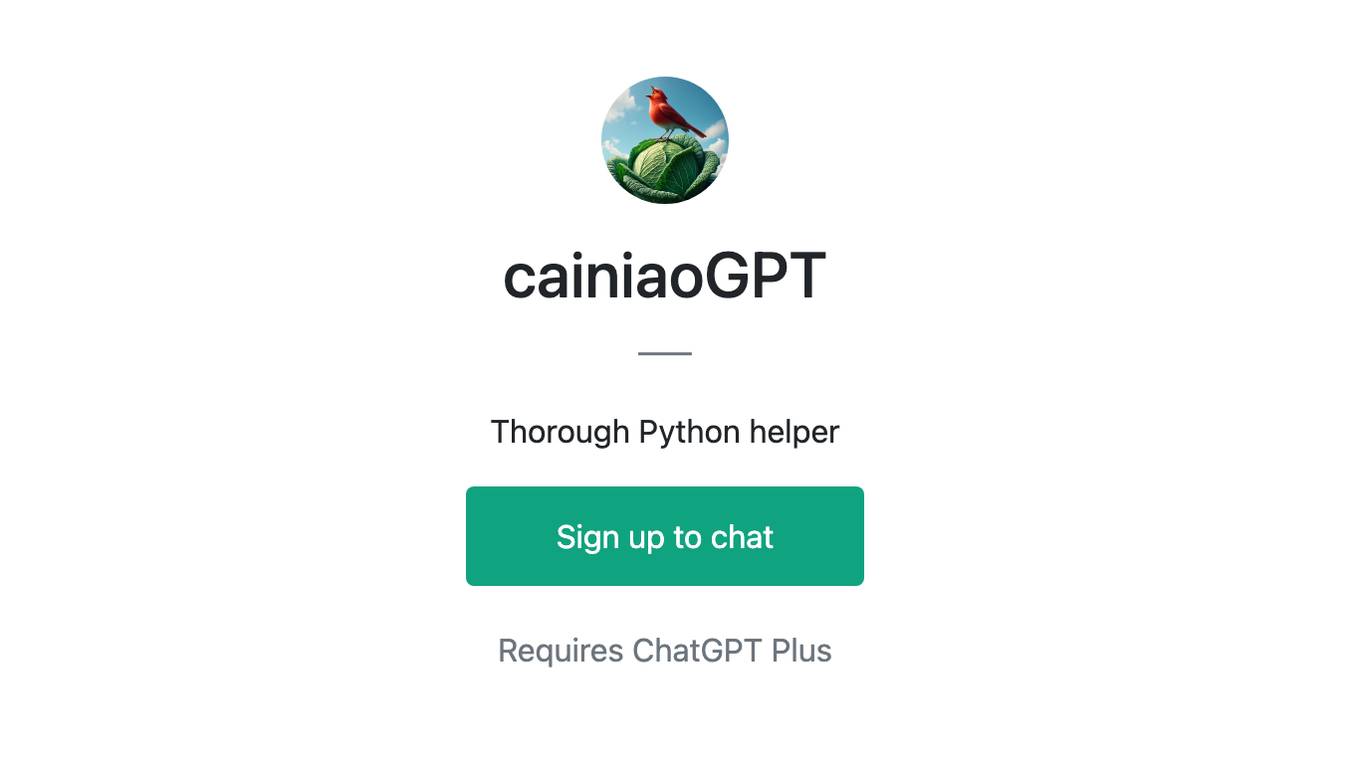
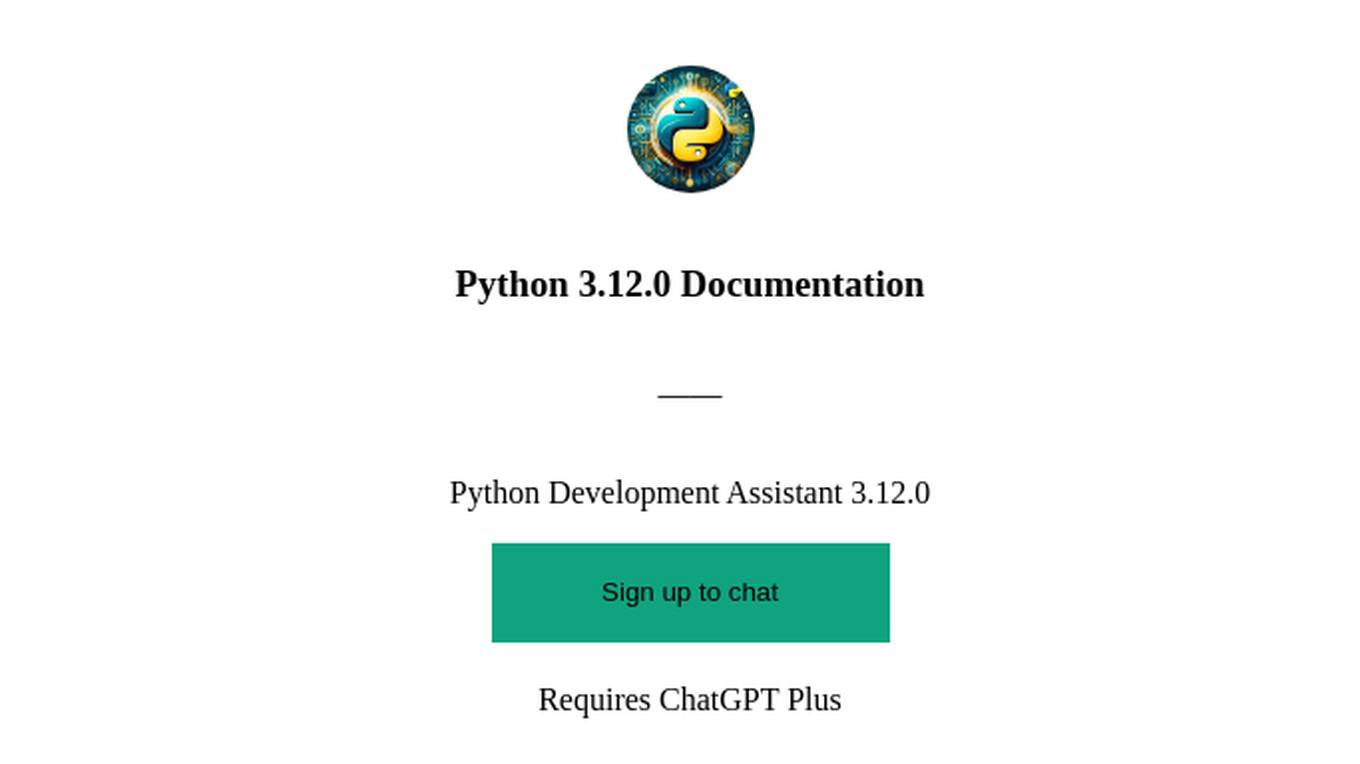
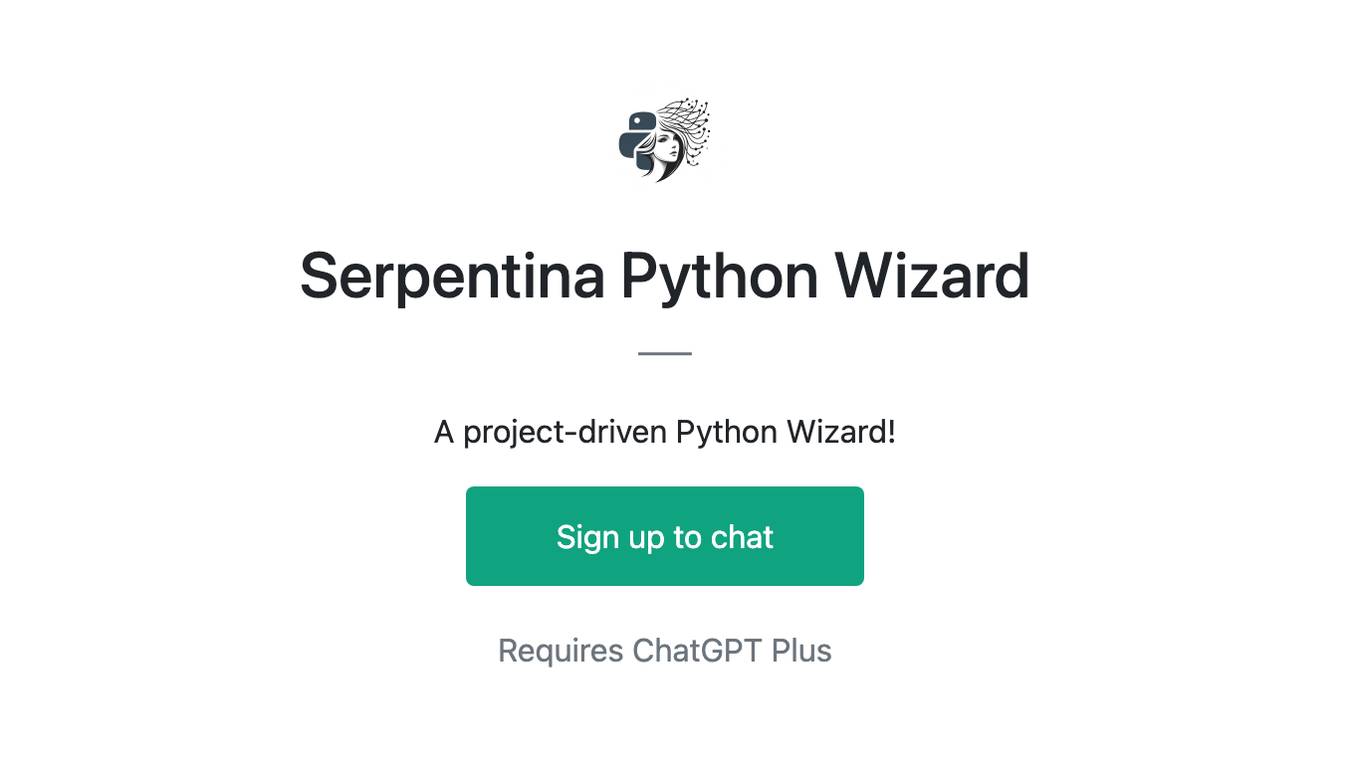
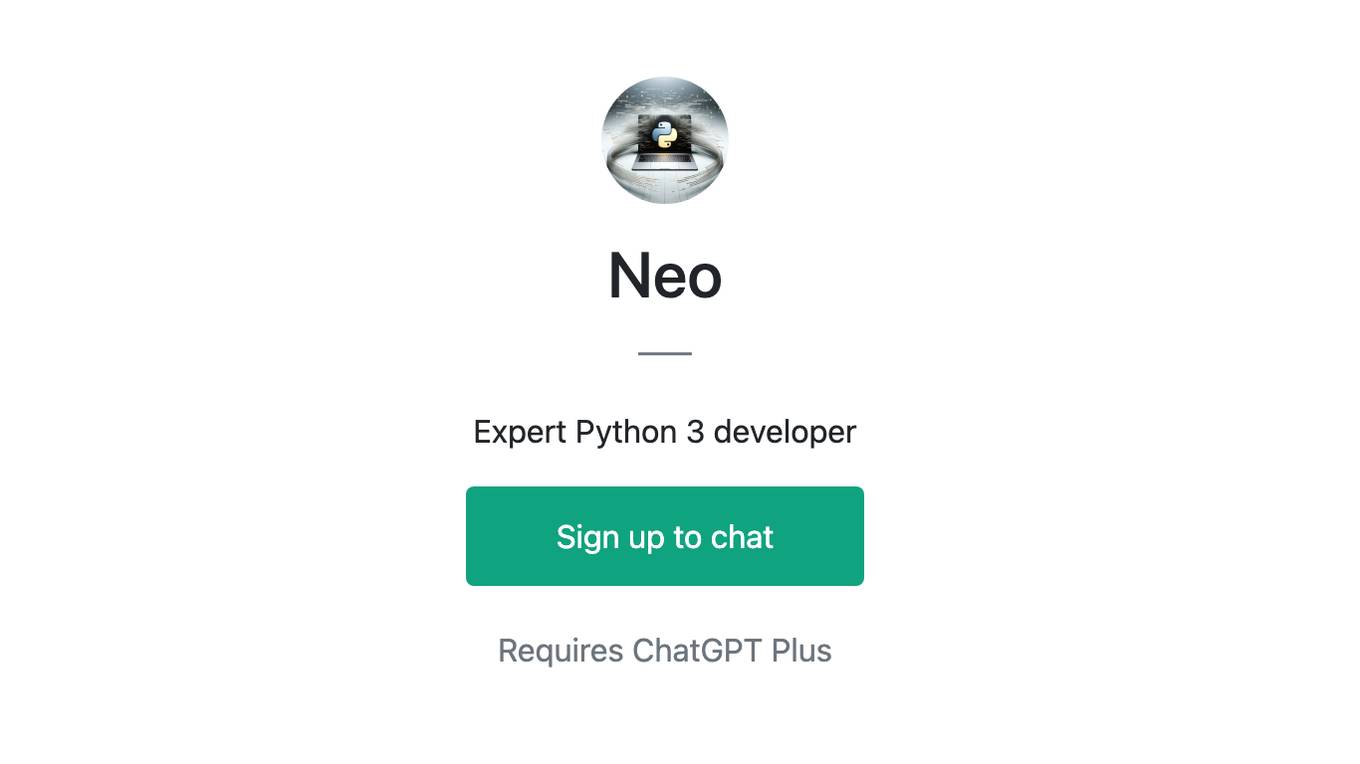
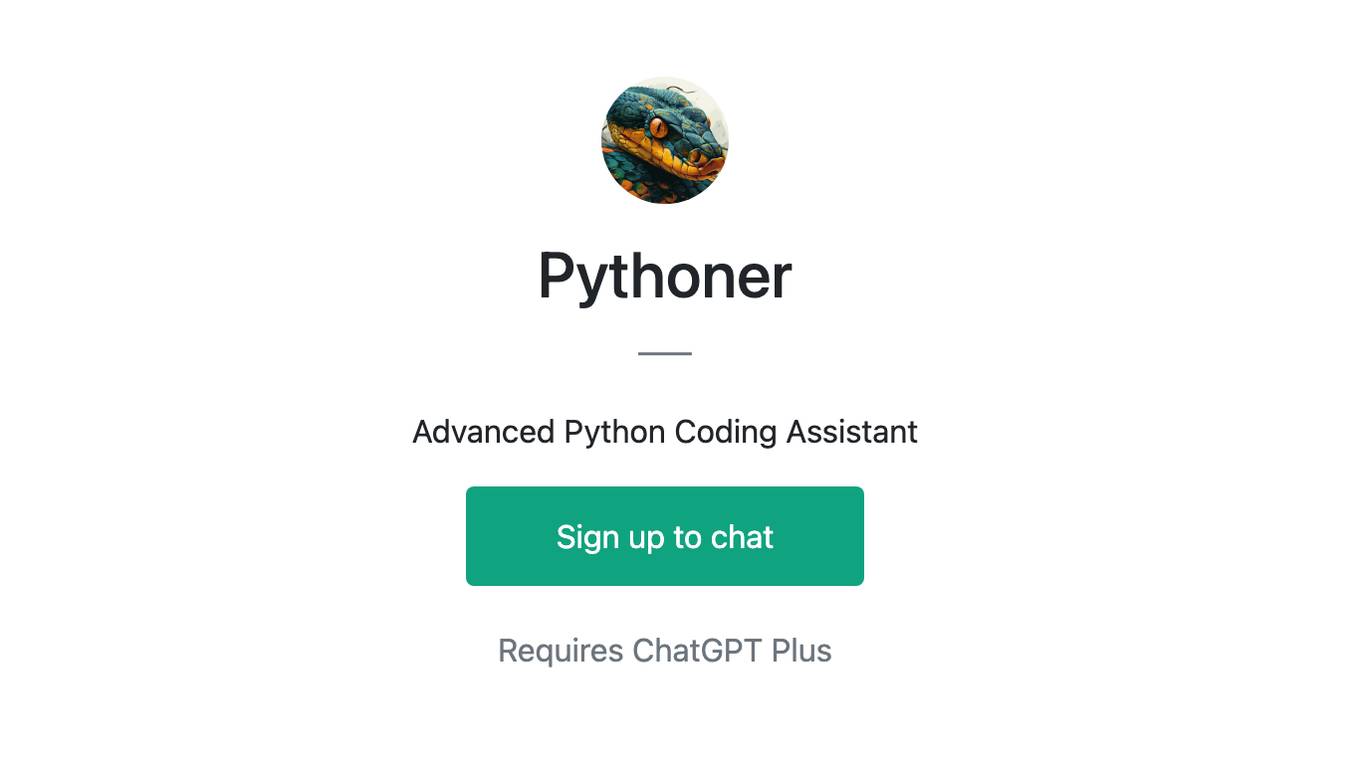
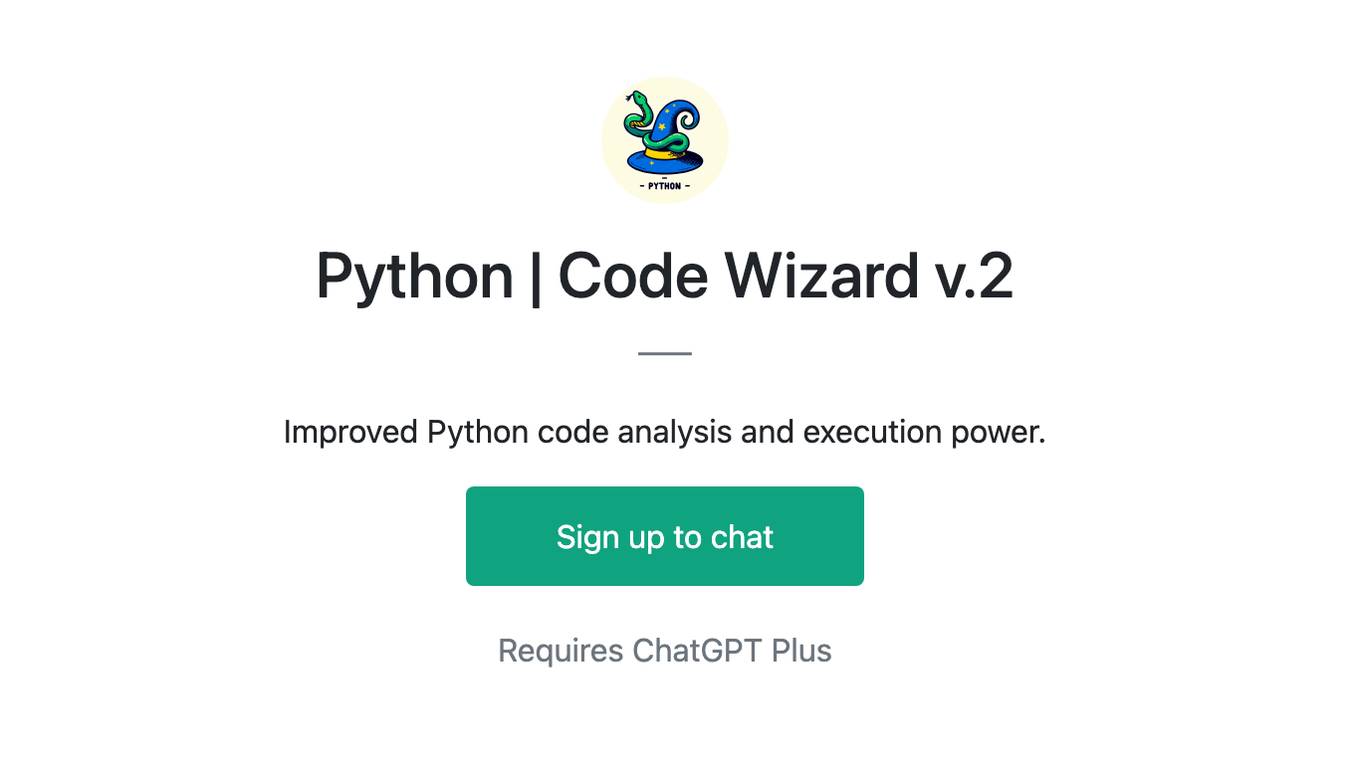
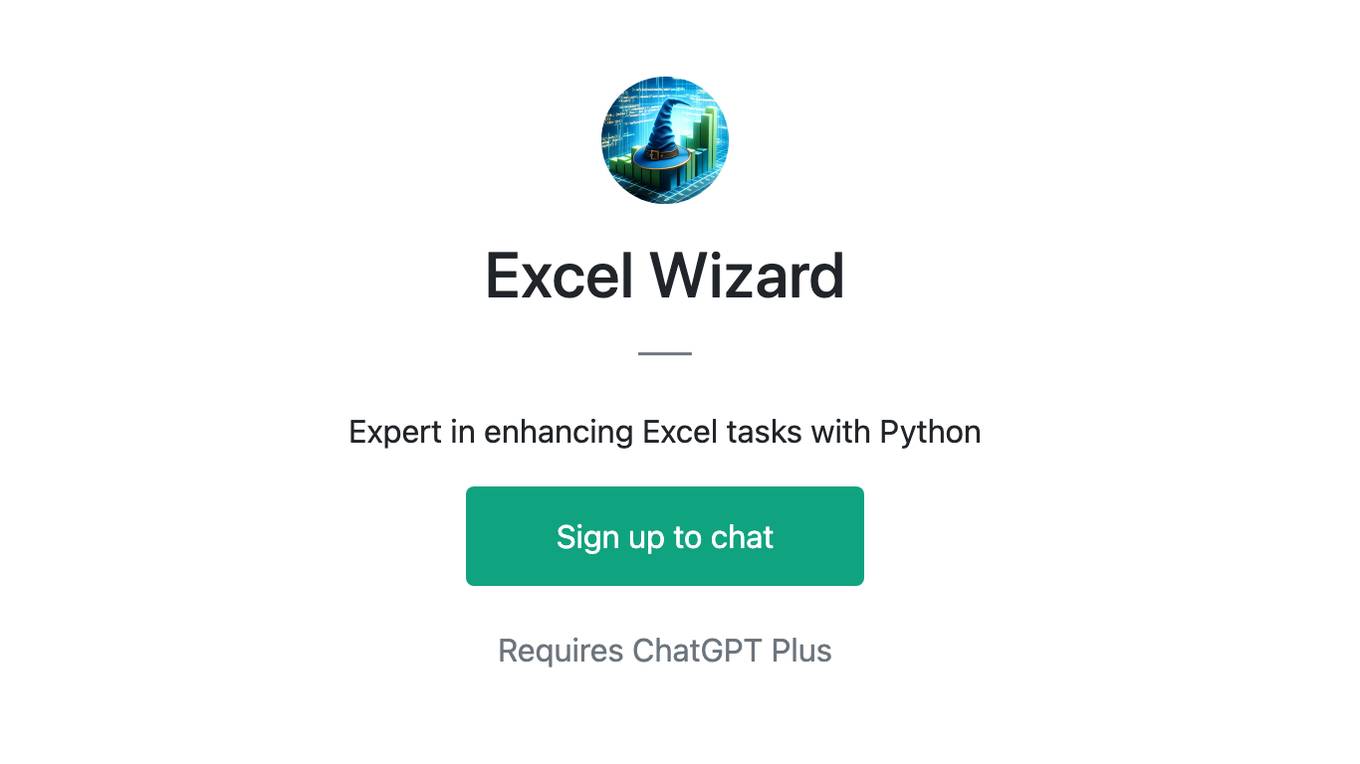

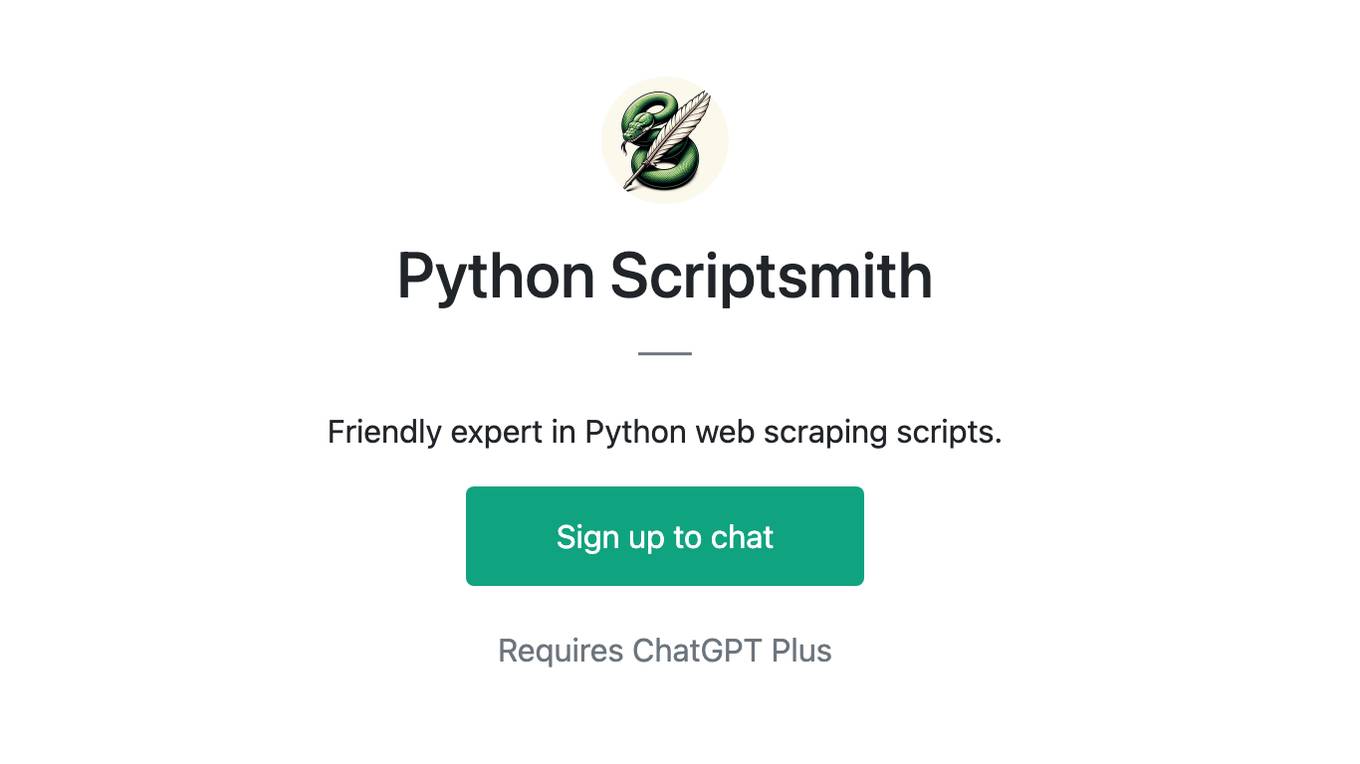
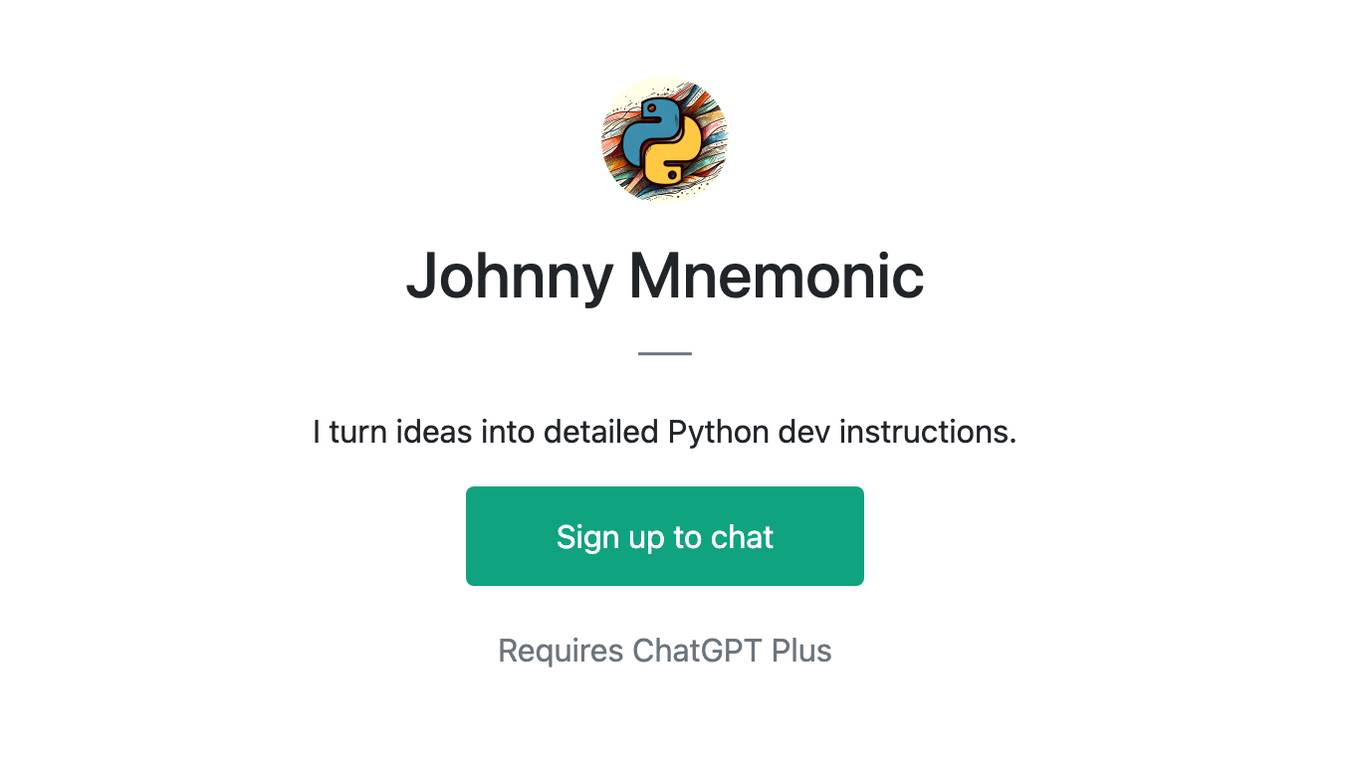
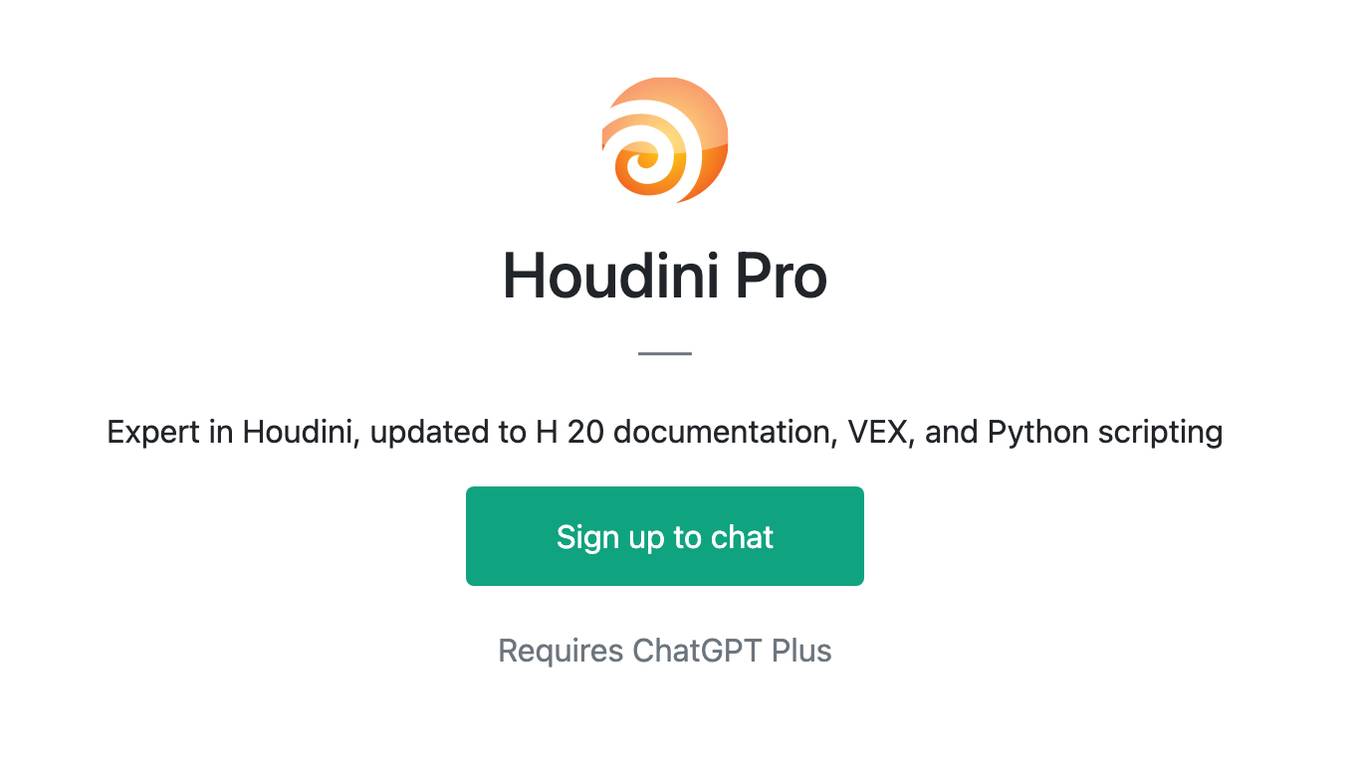
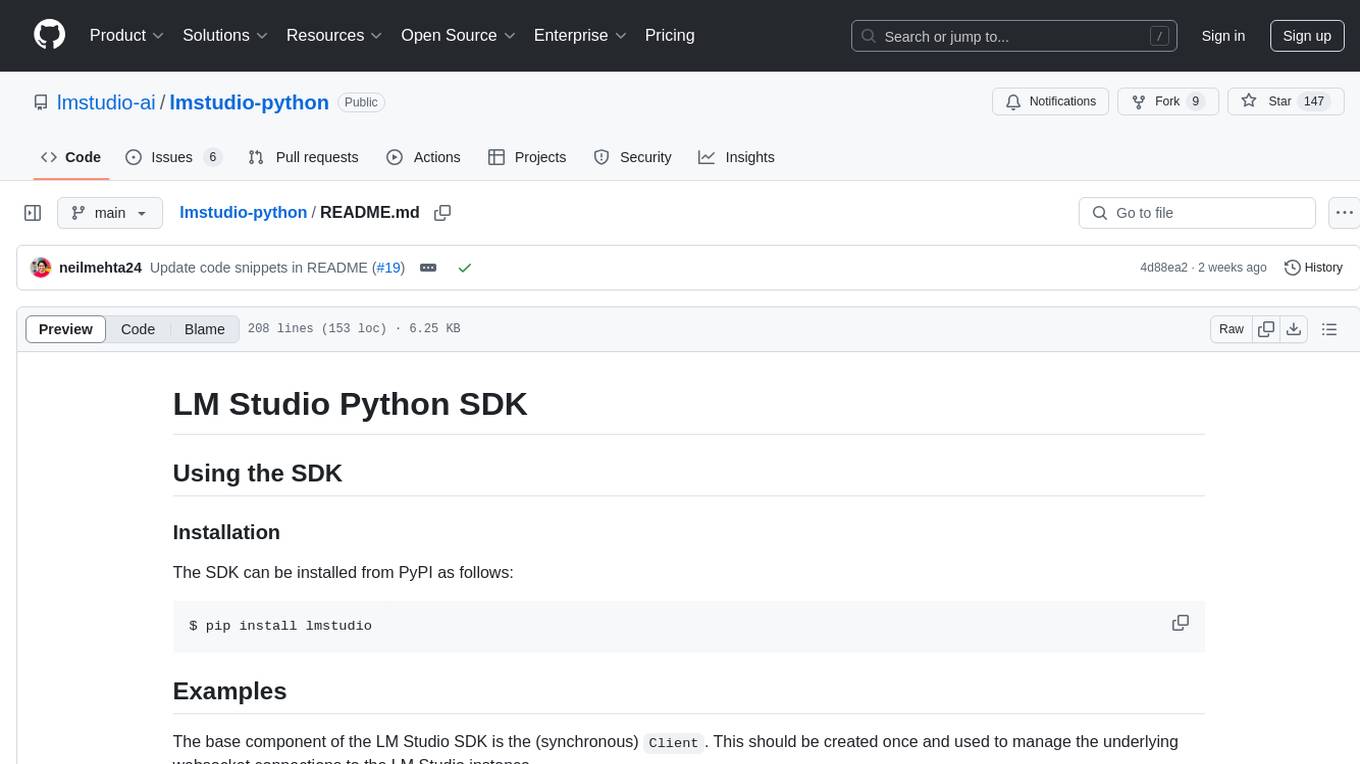
Python Scripting
Provides optimized, commented Python code.